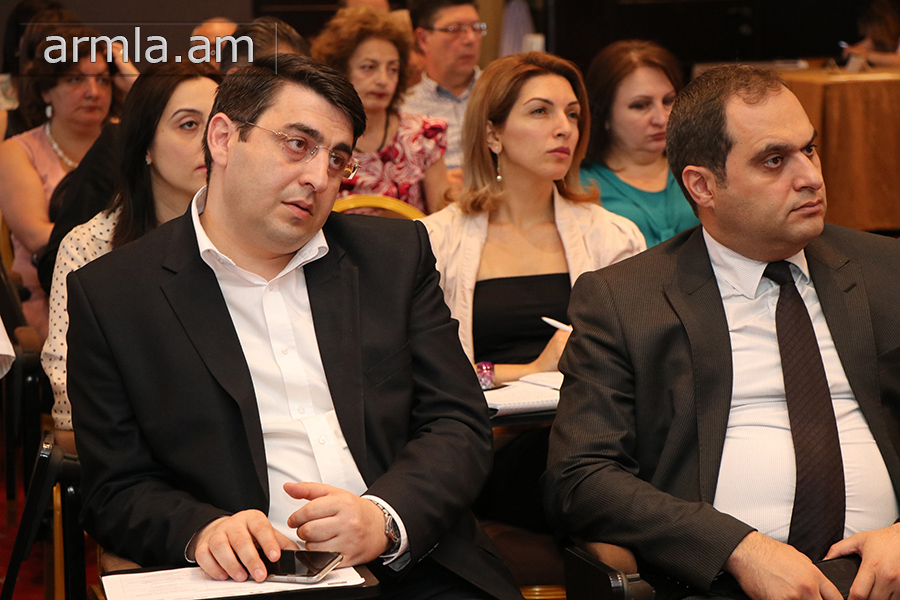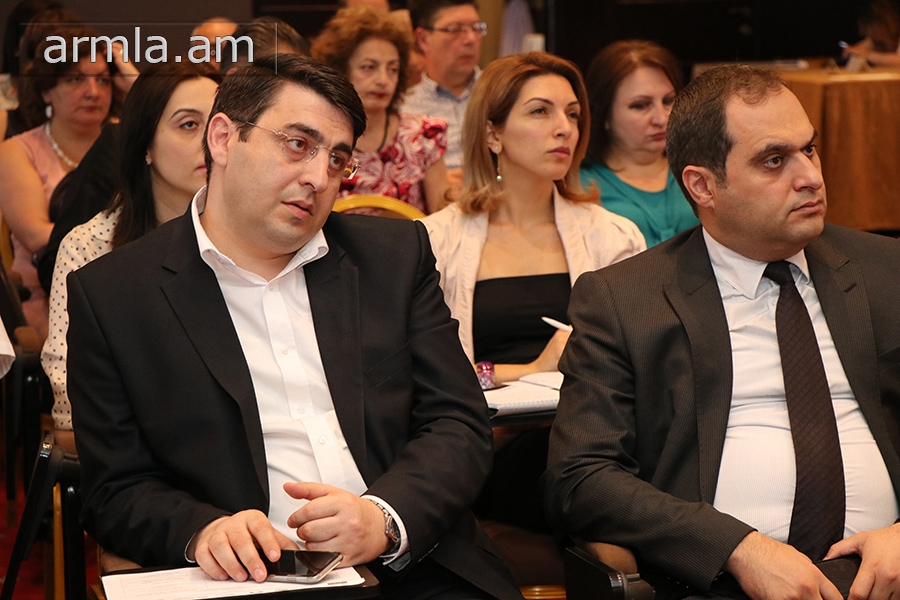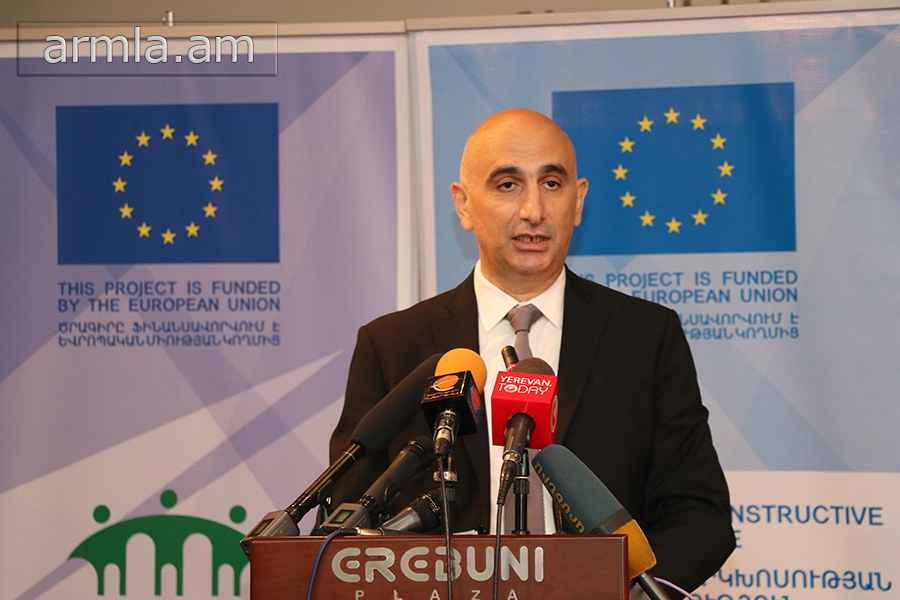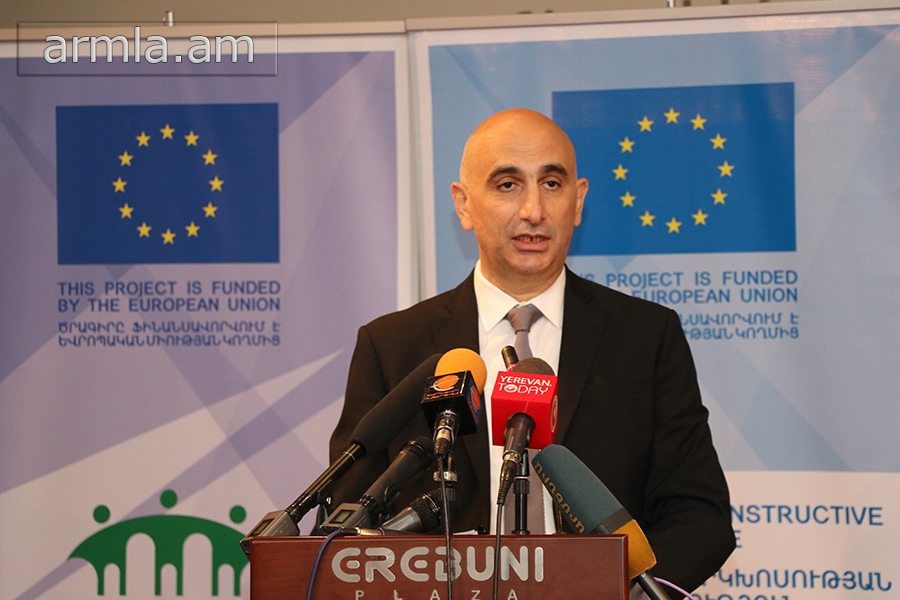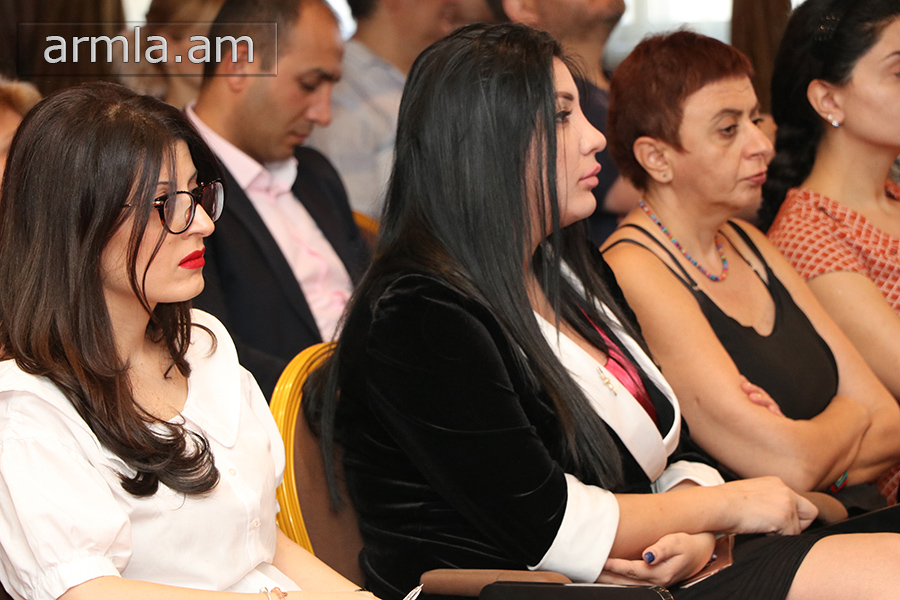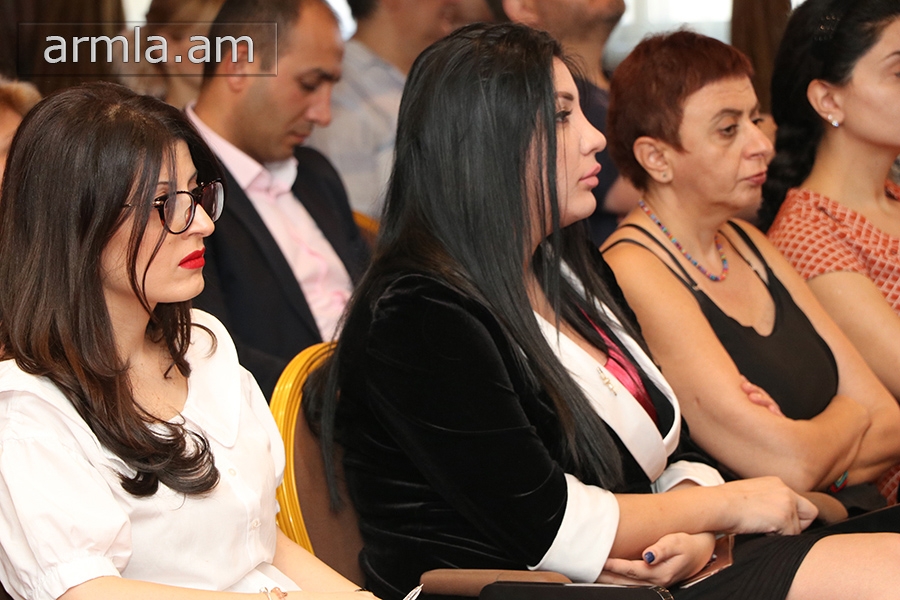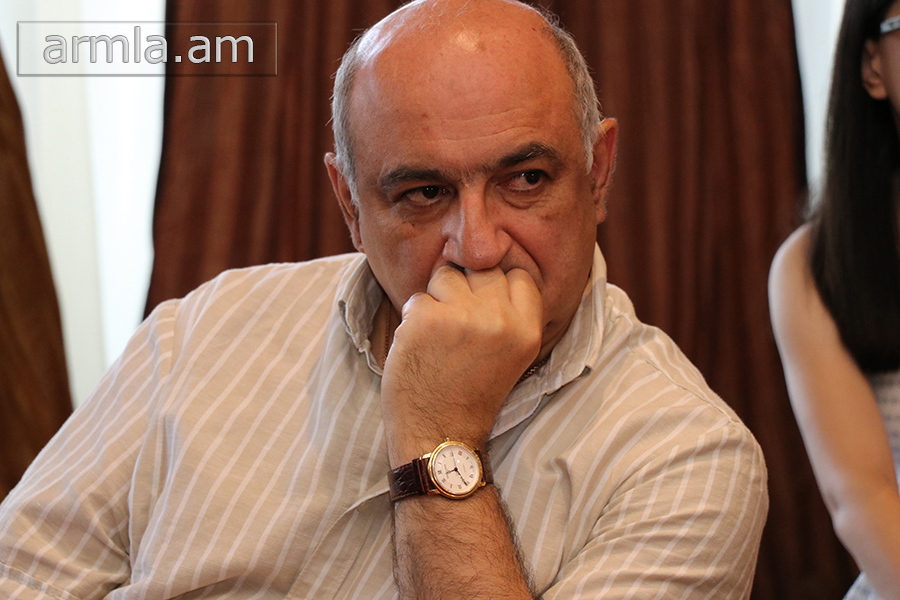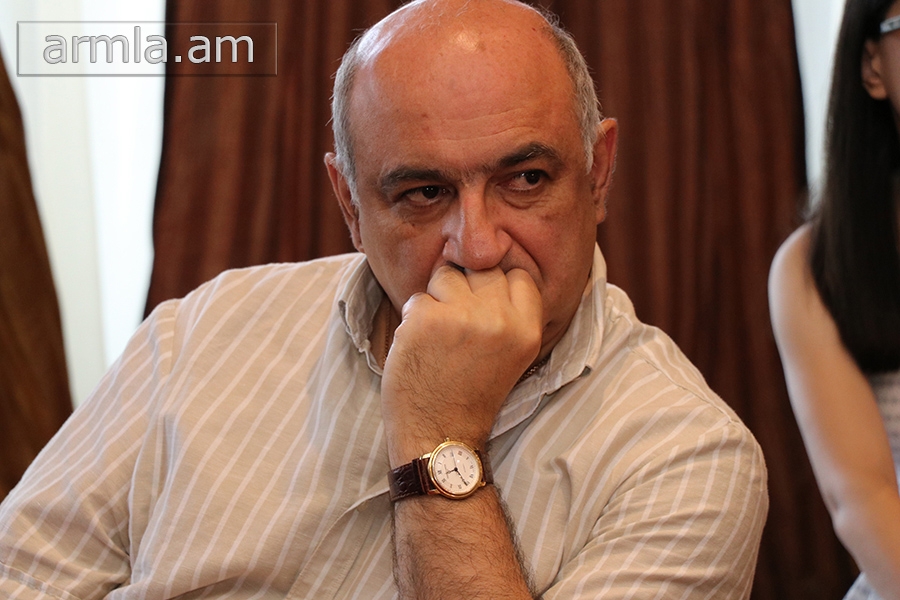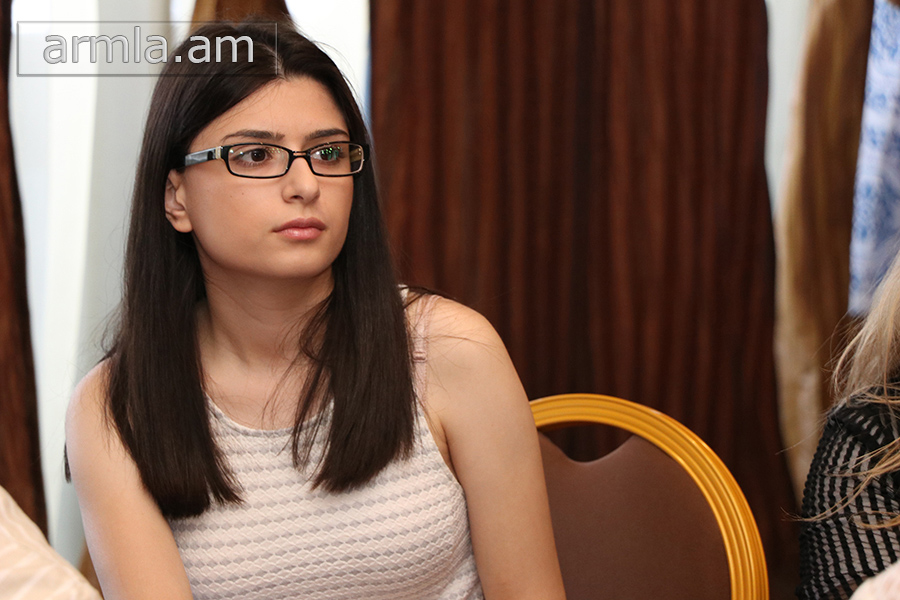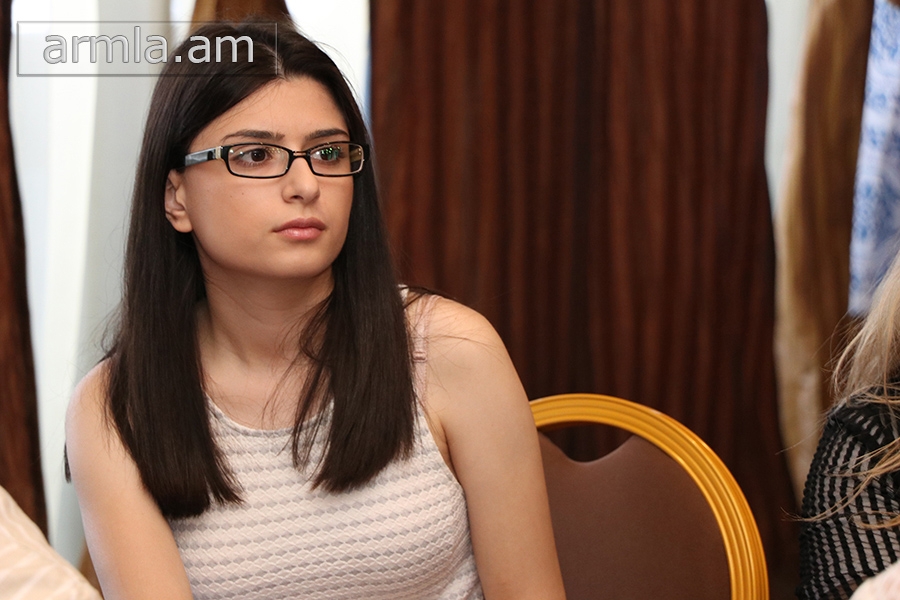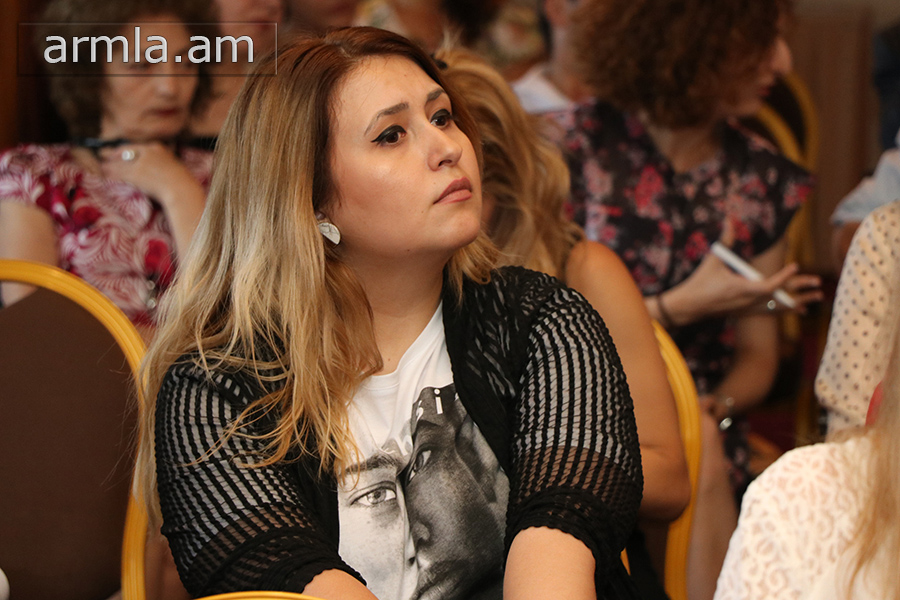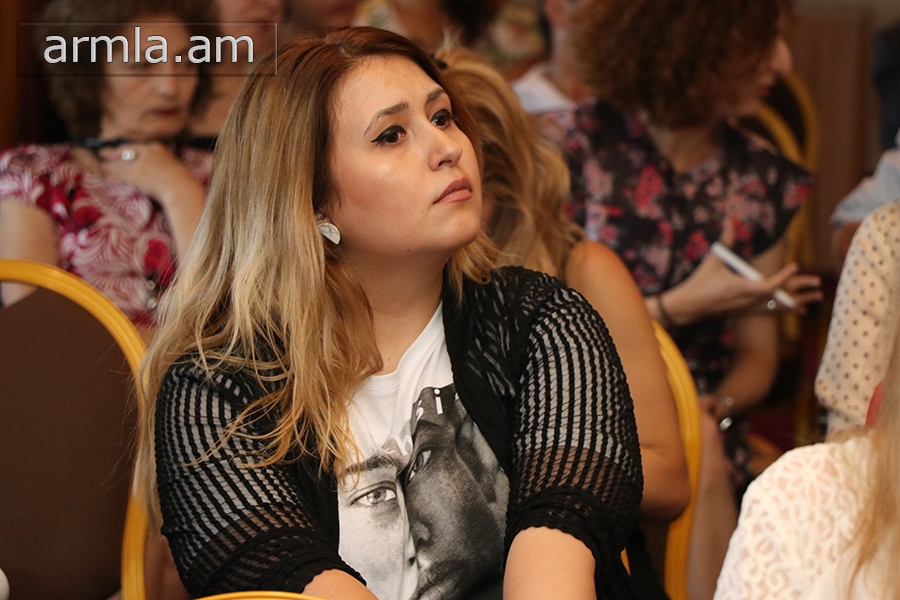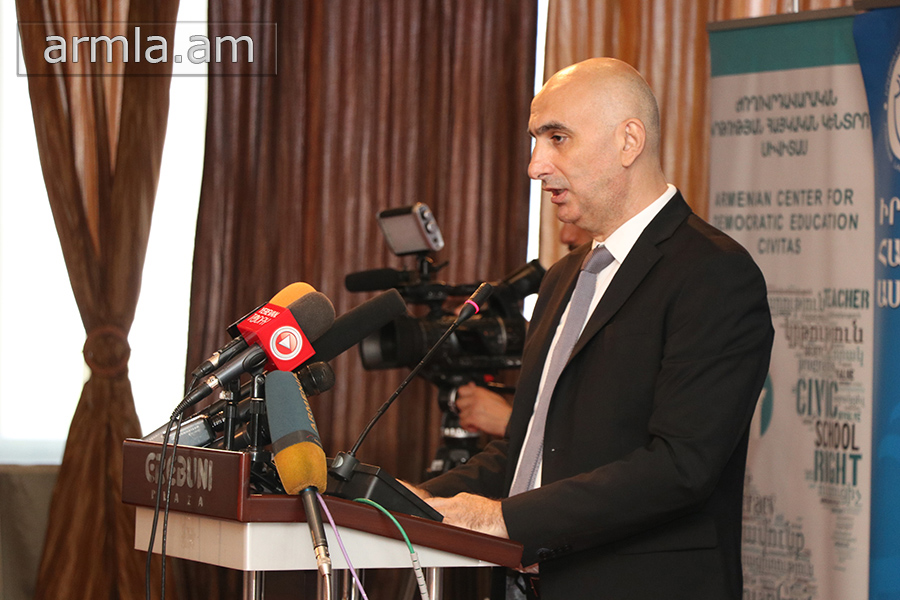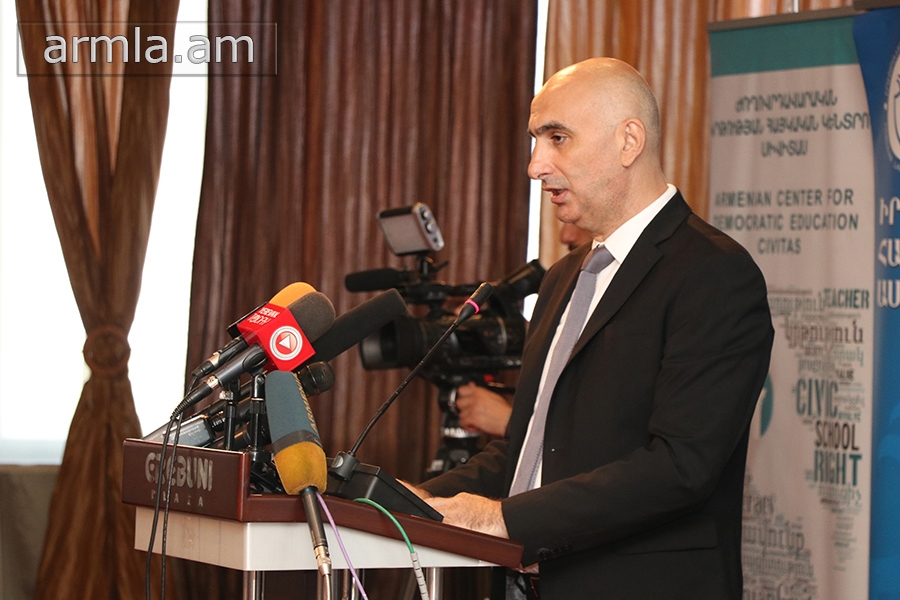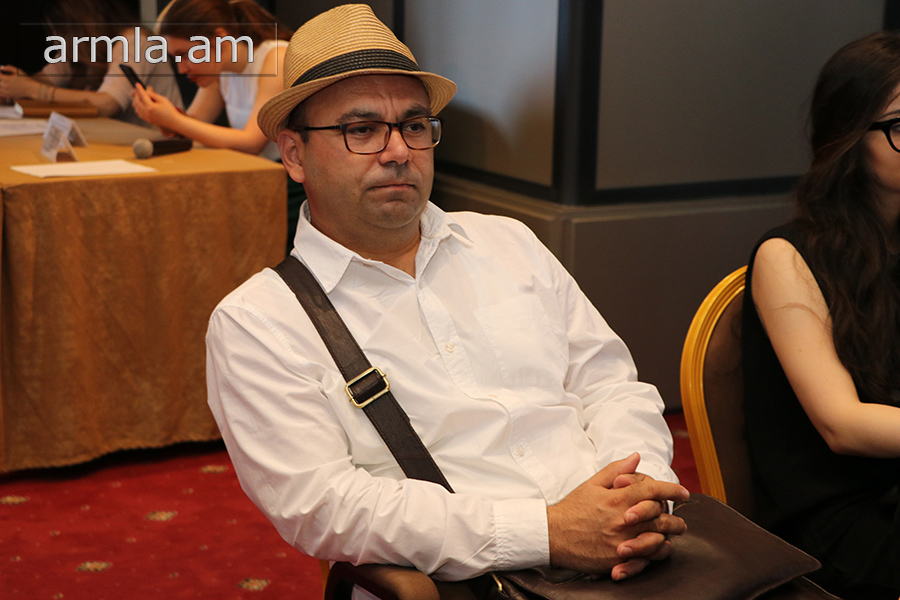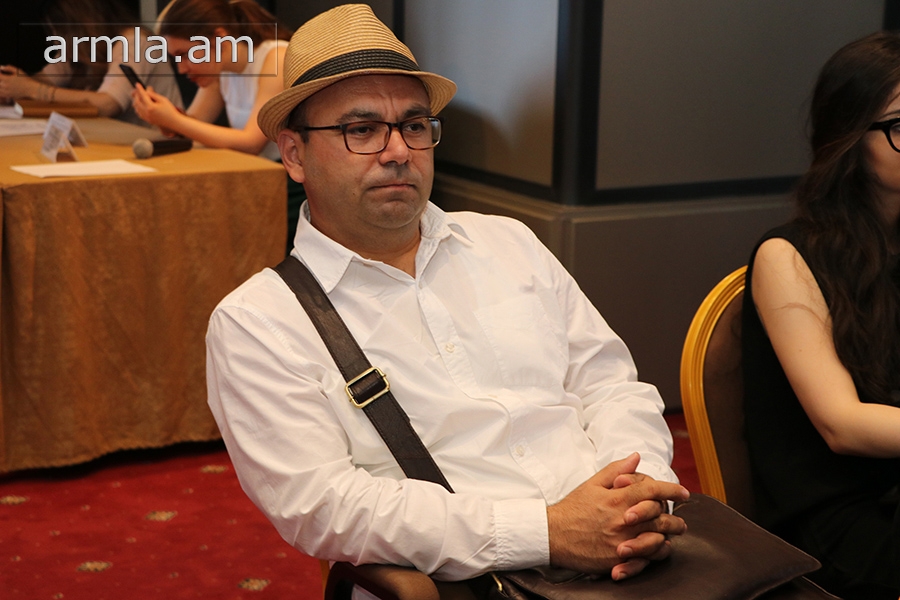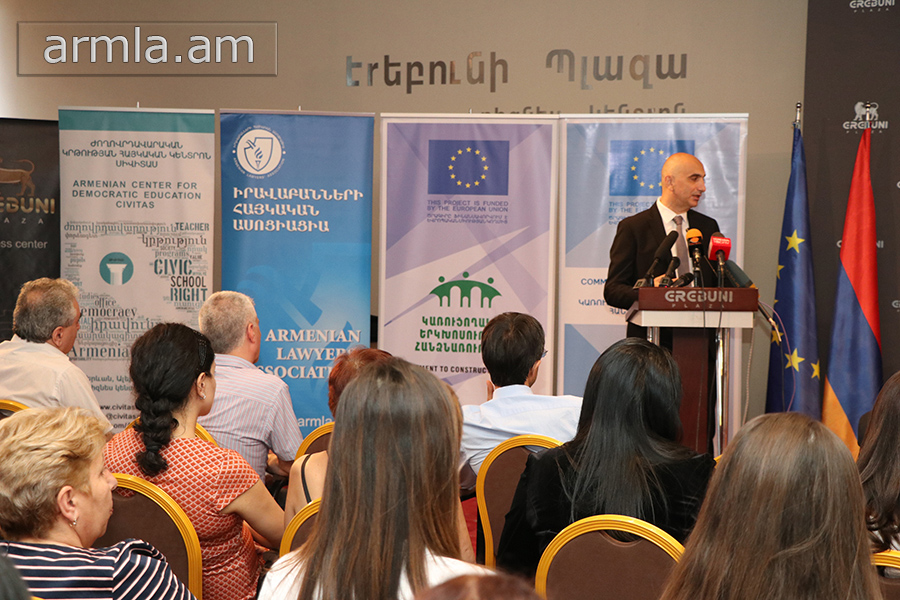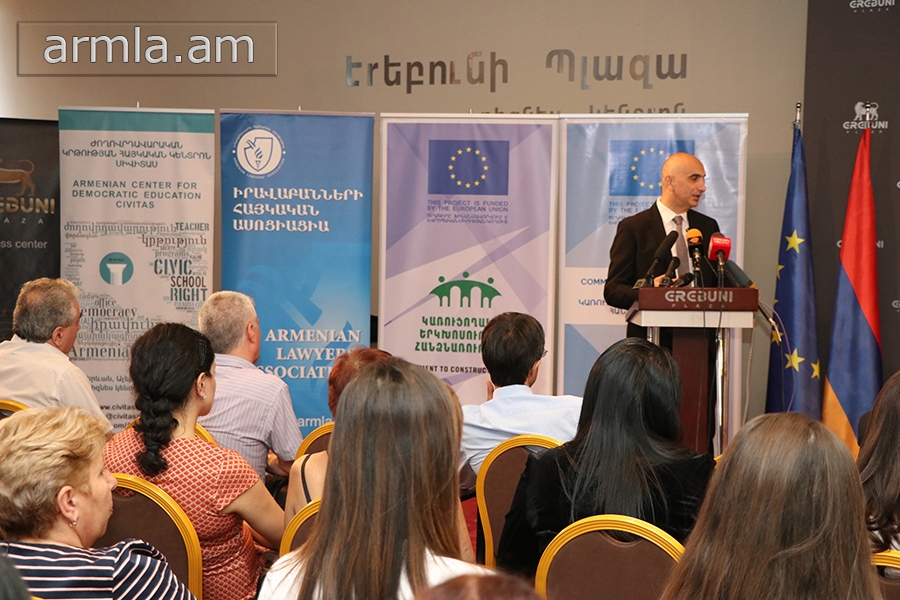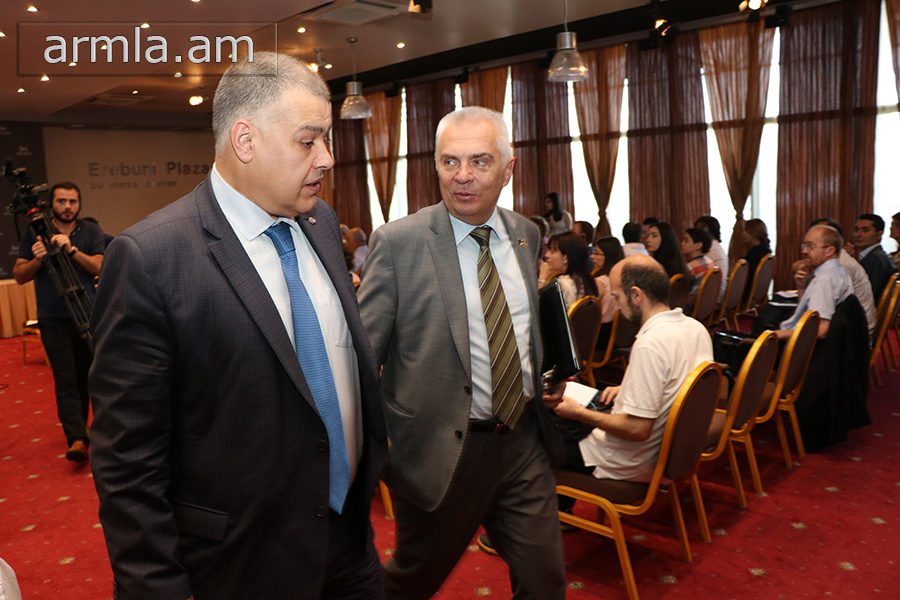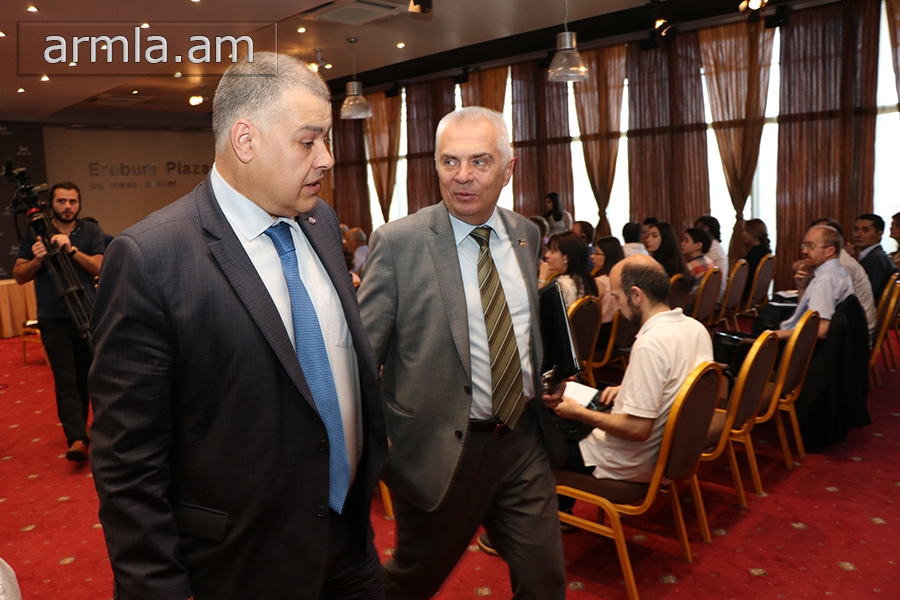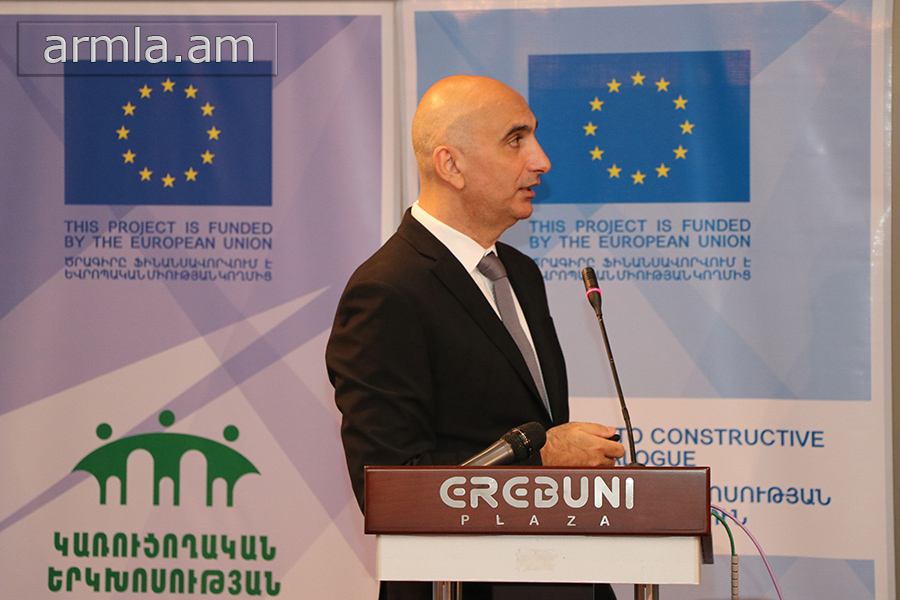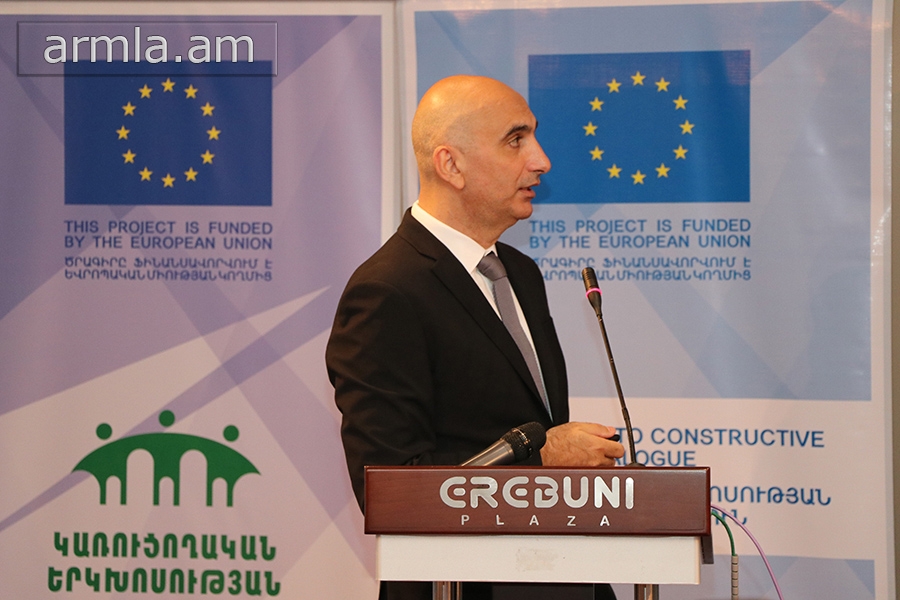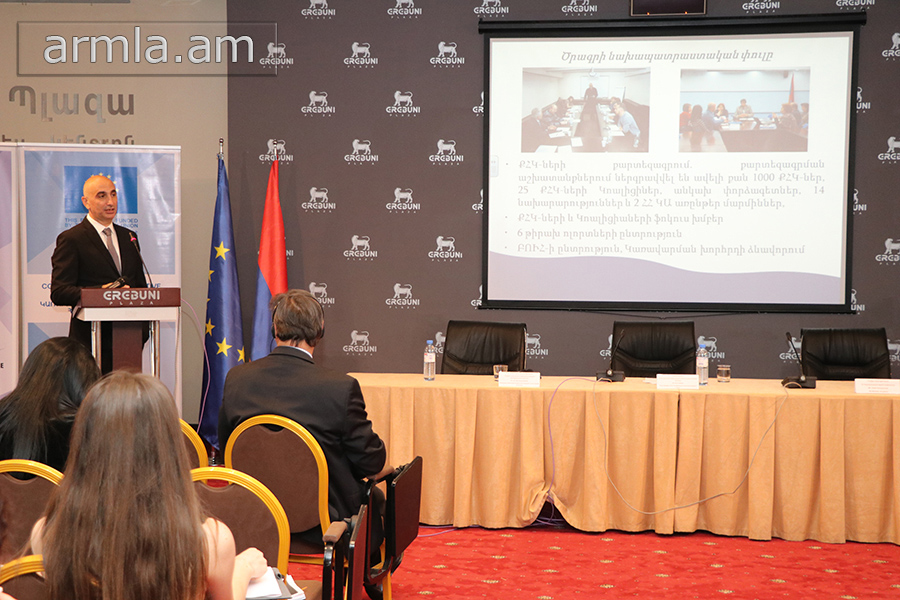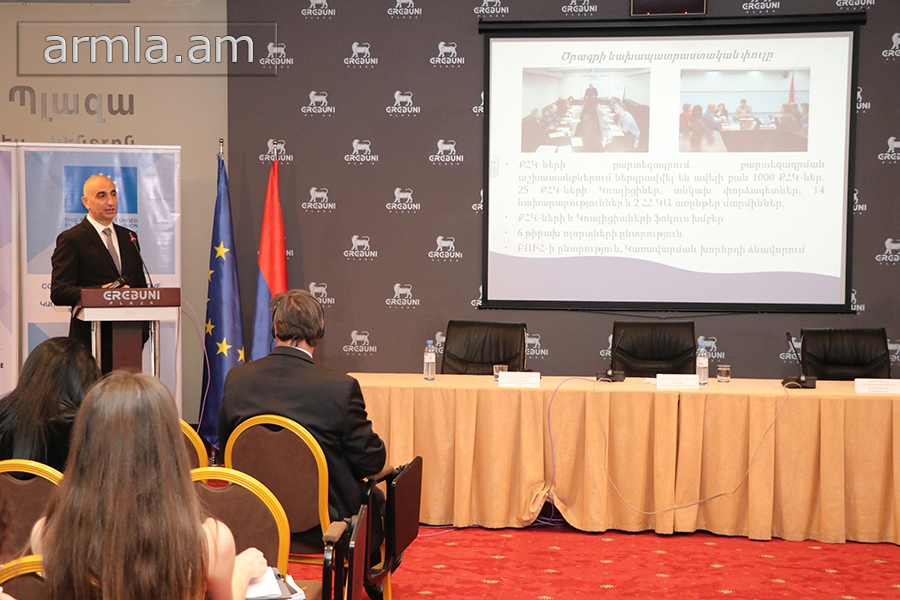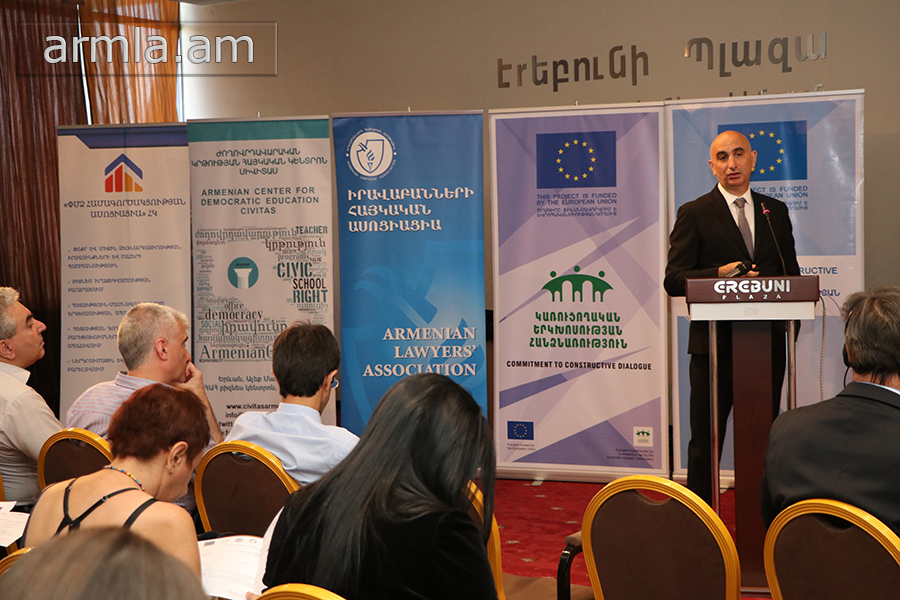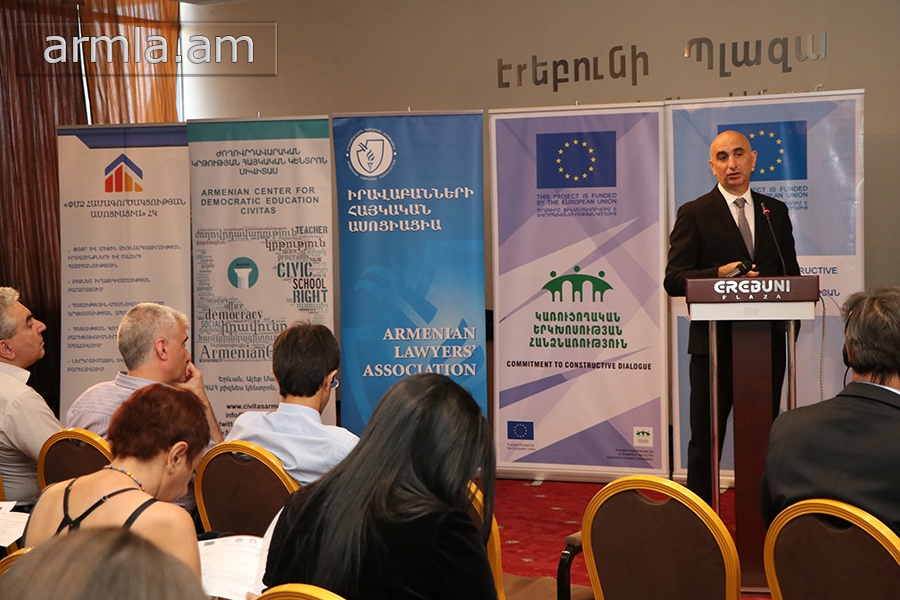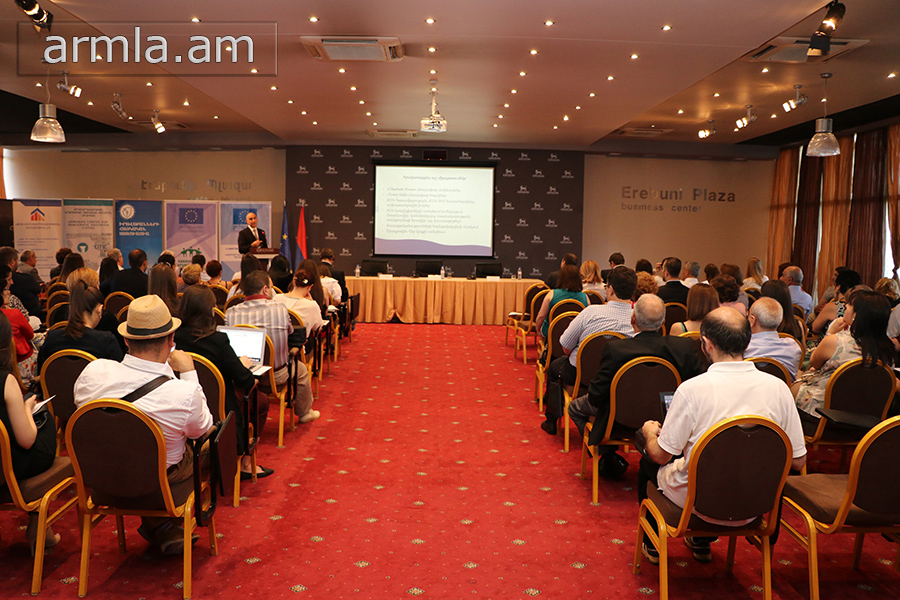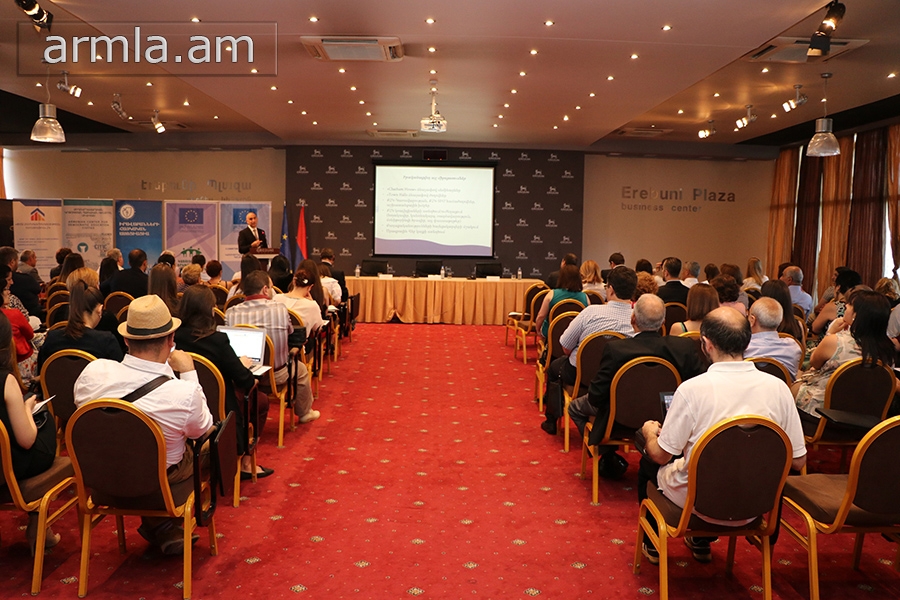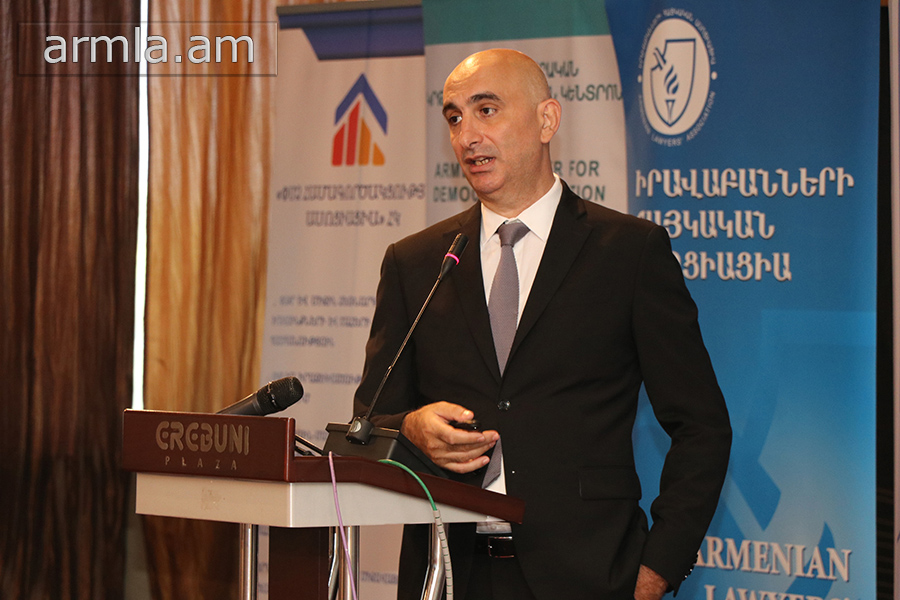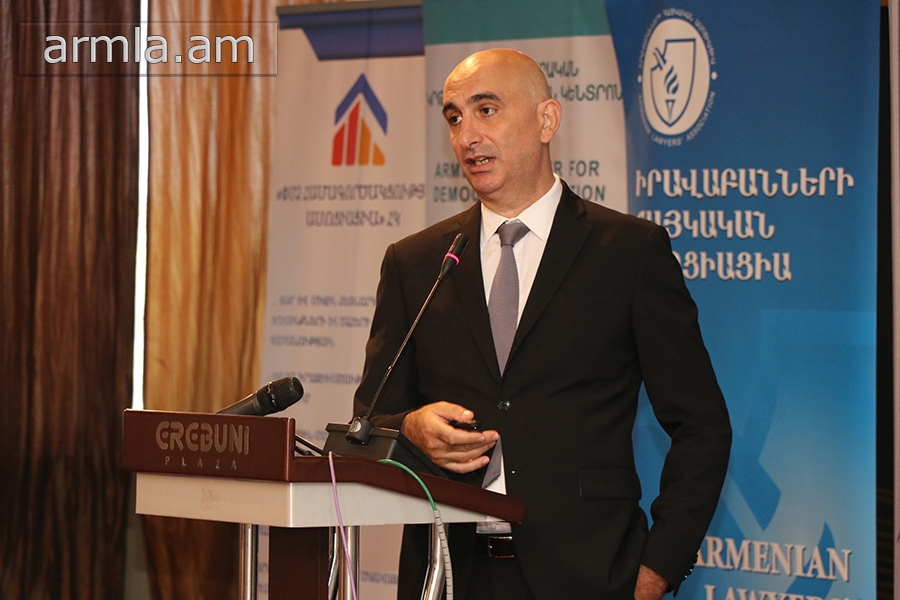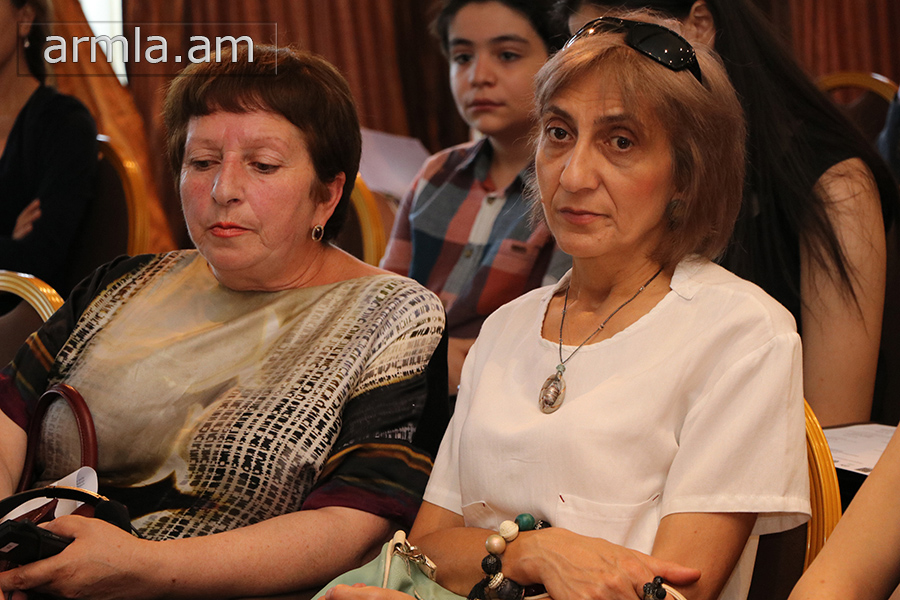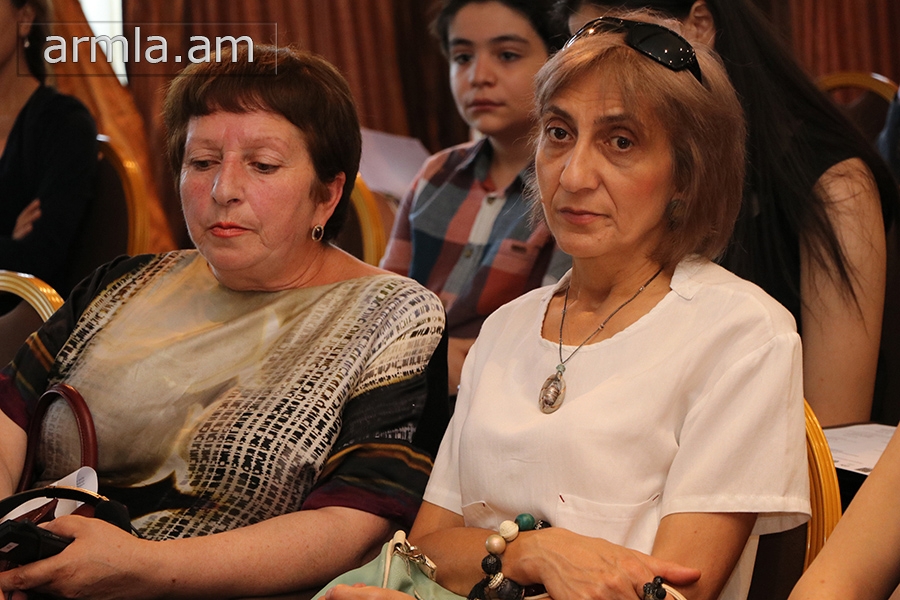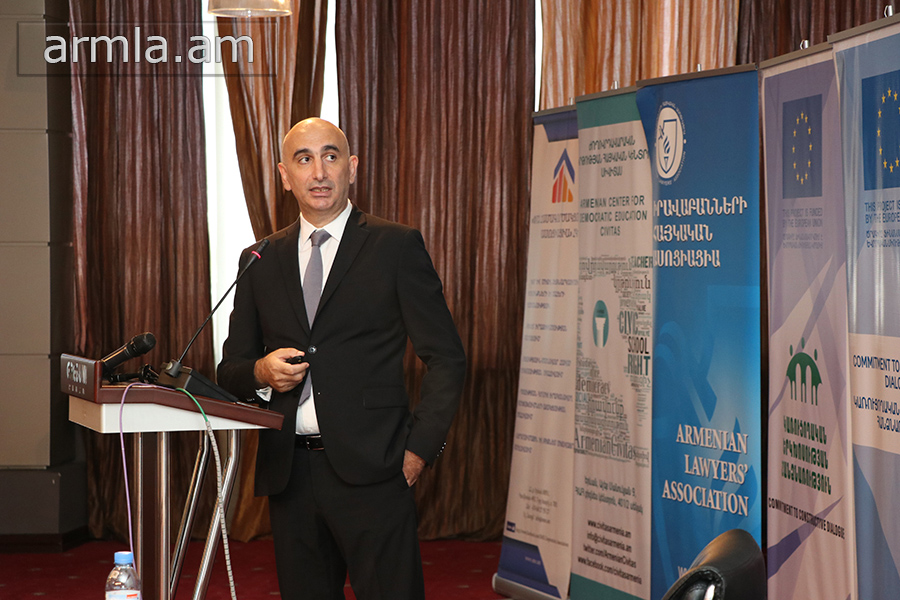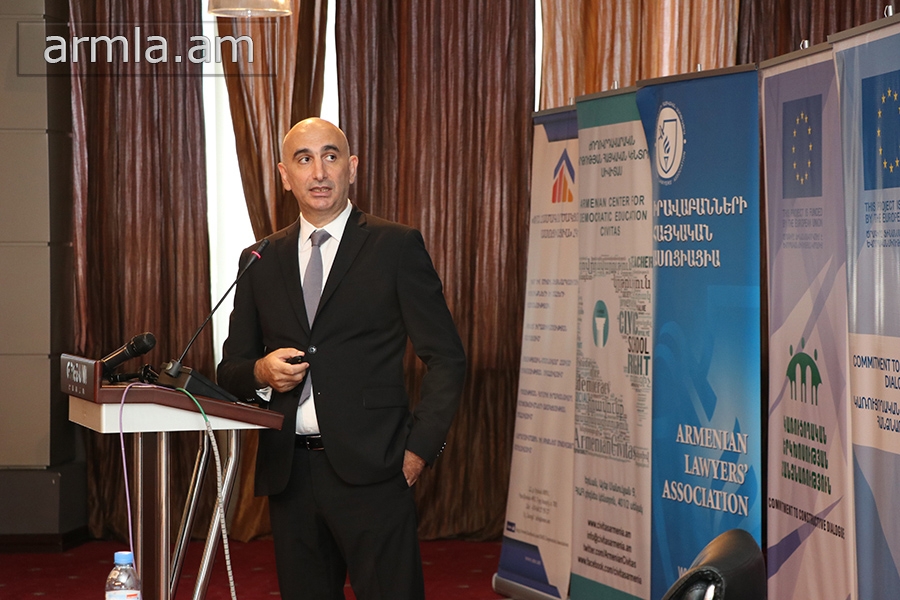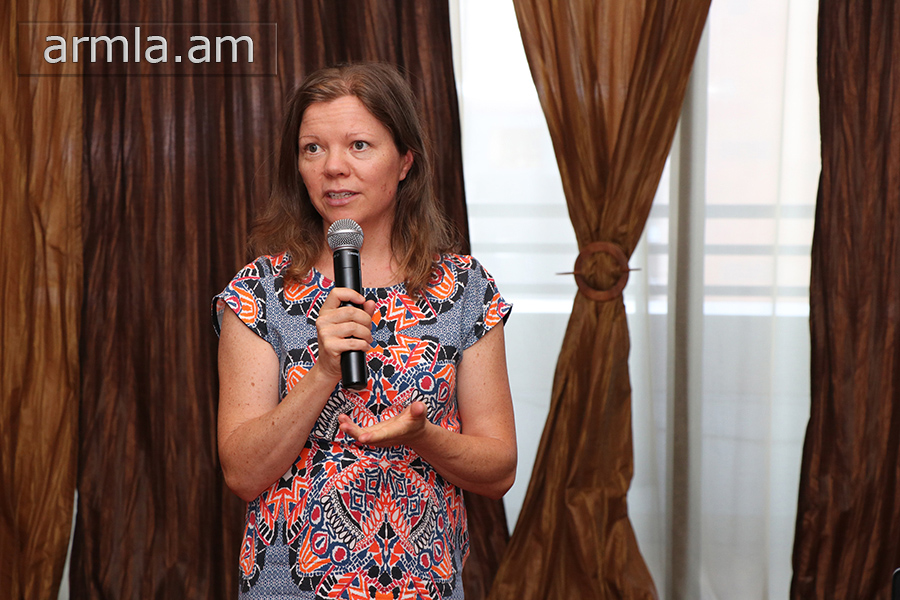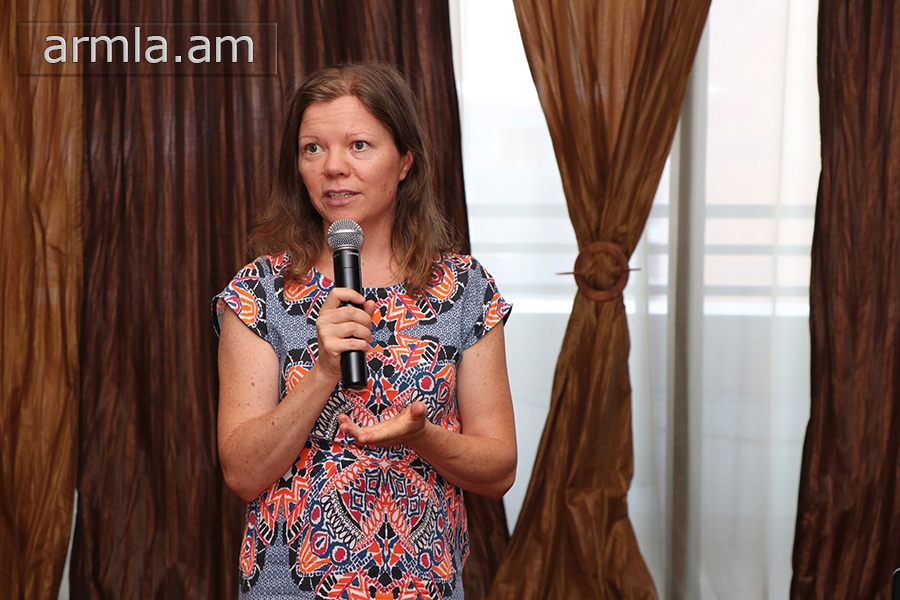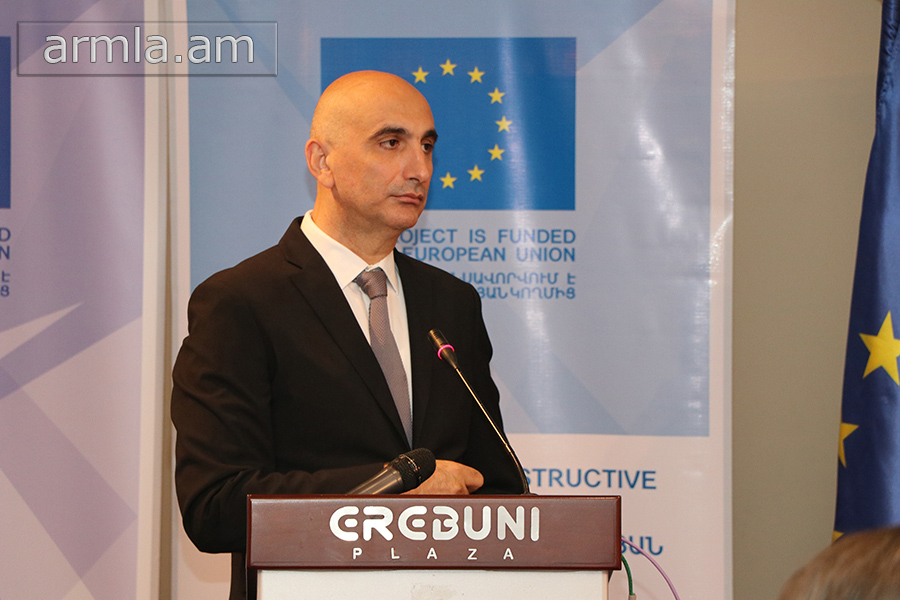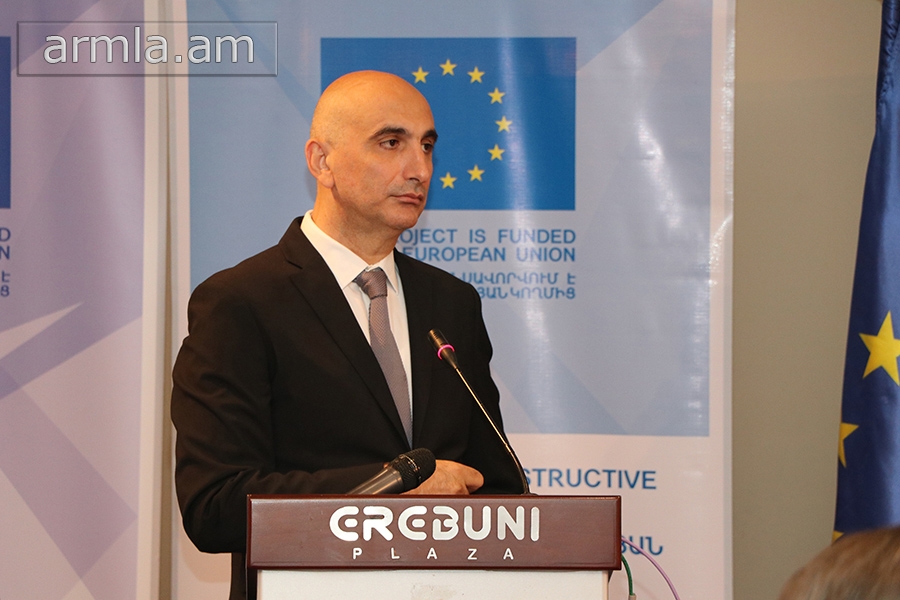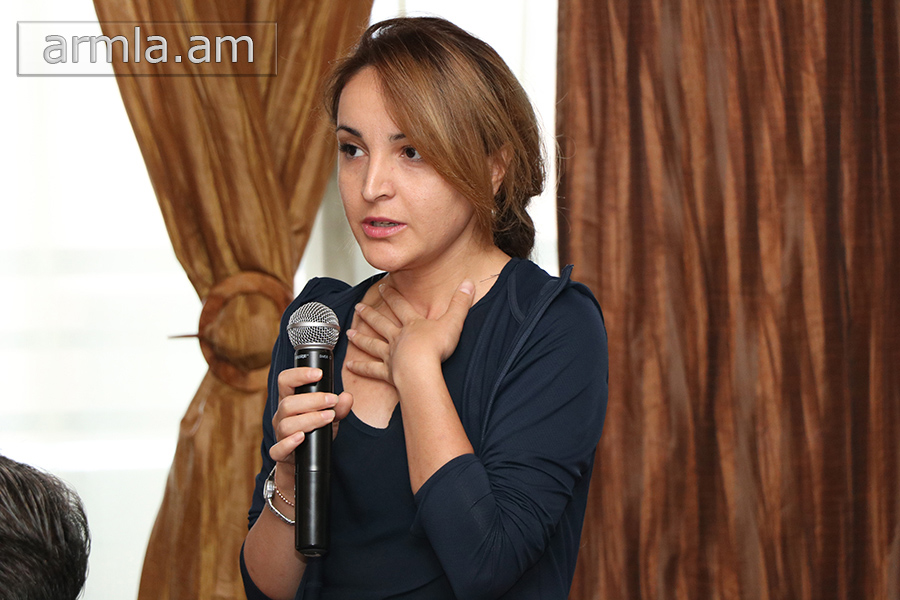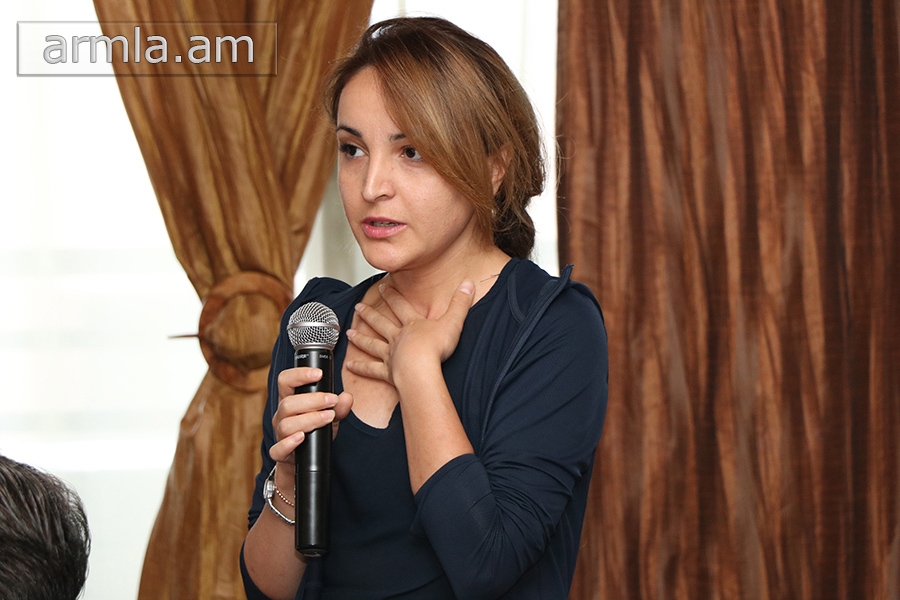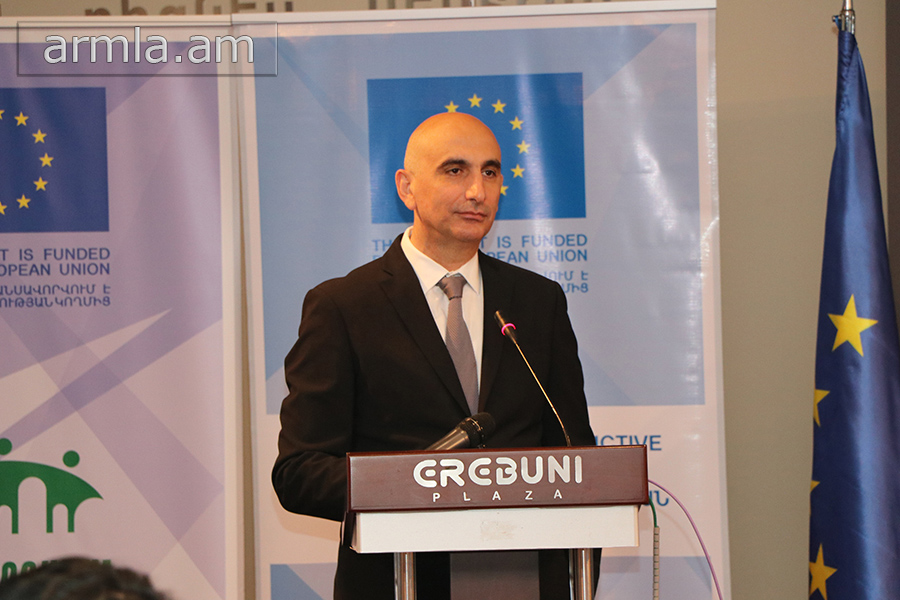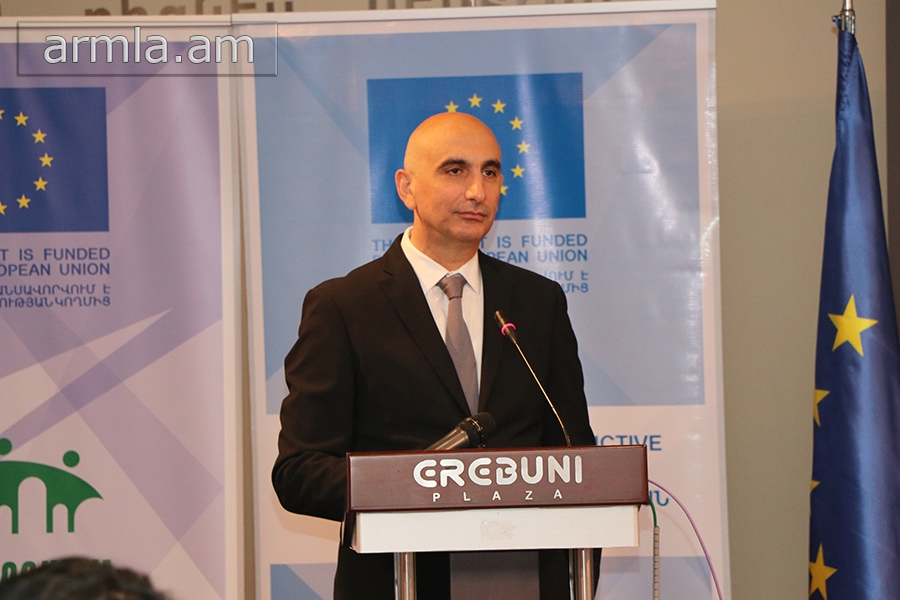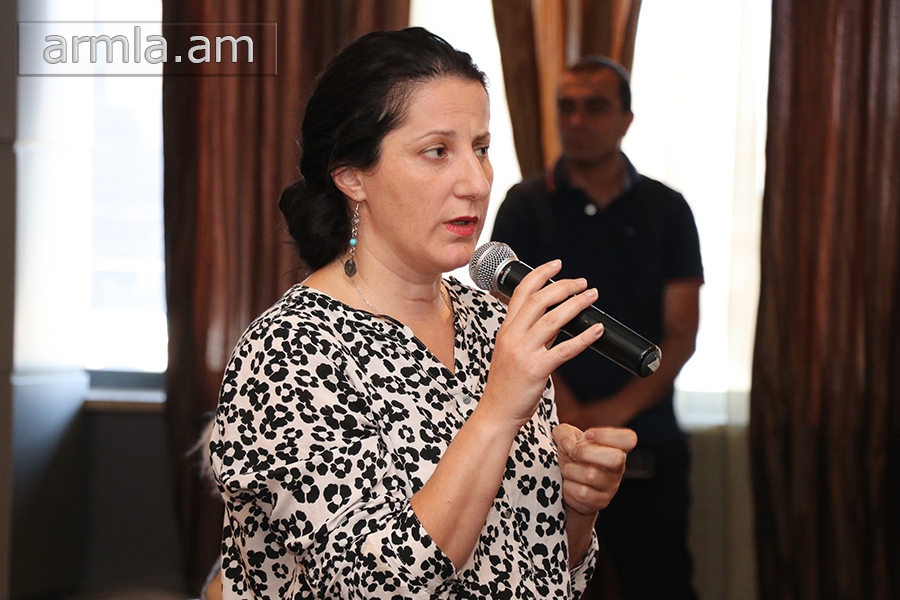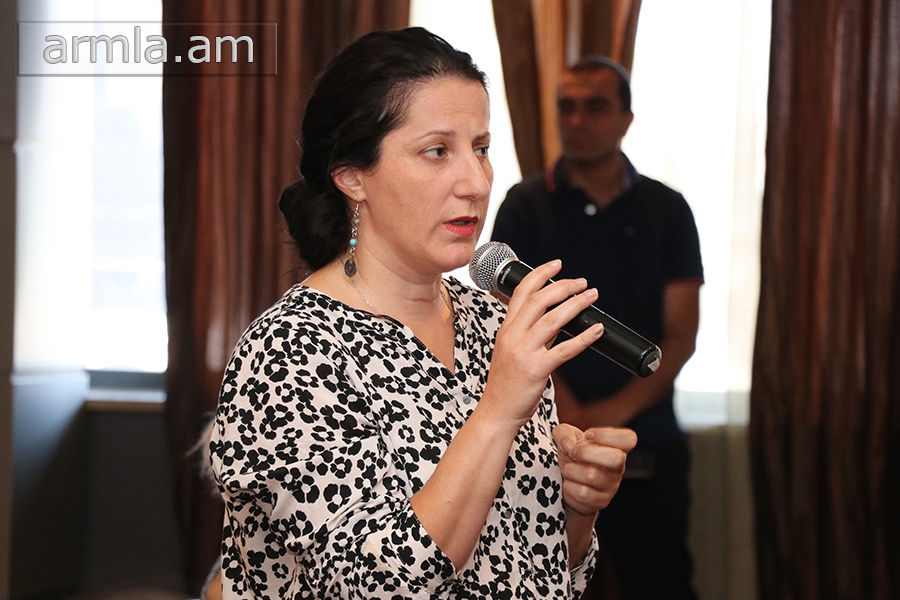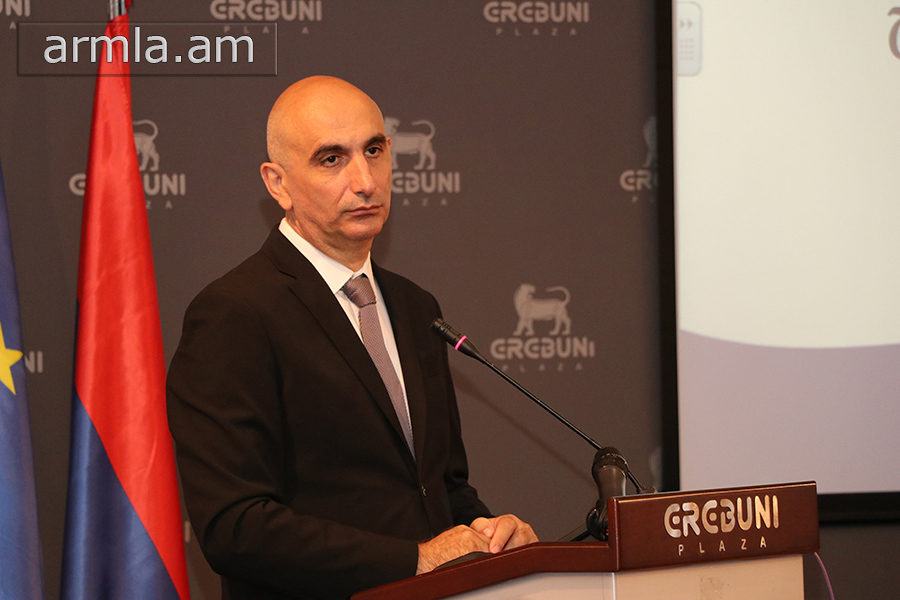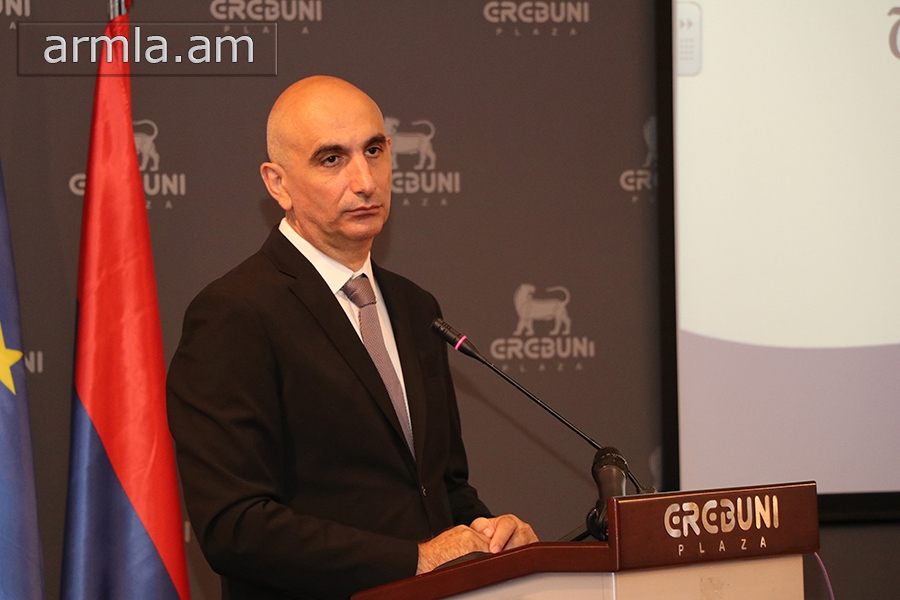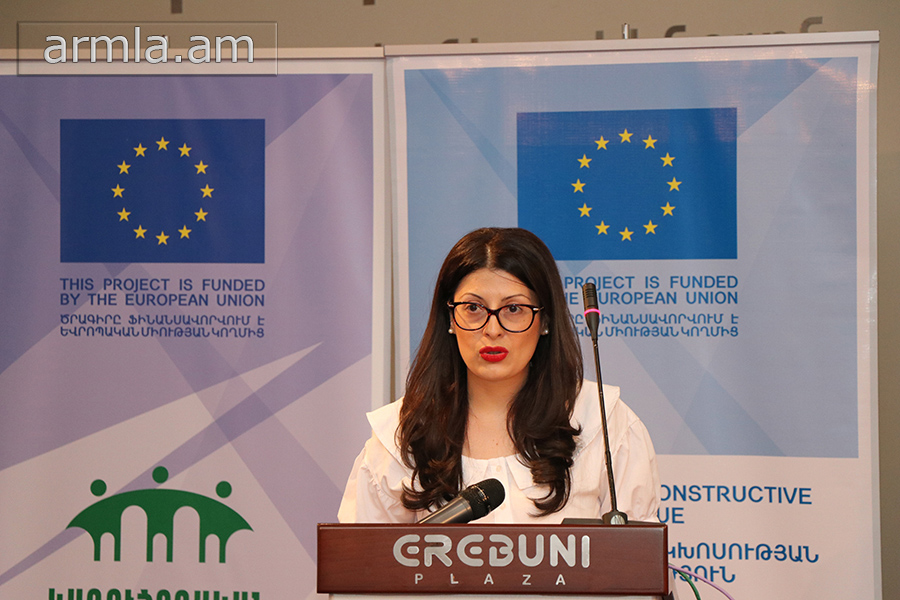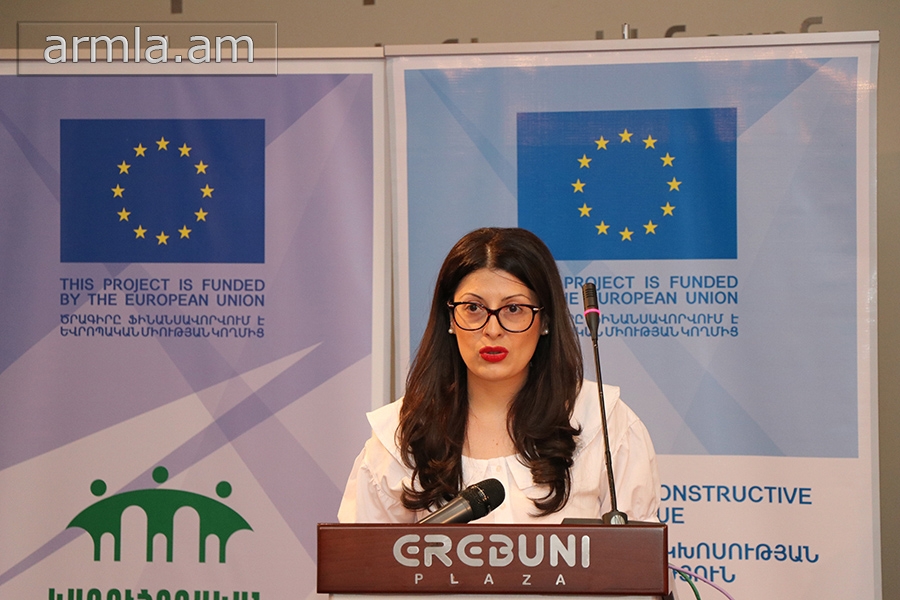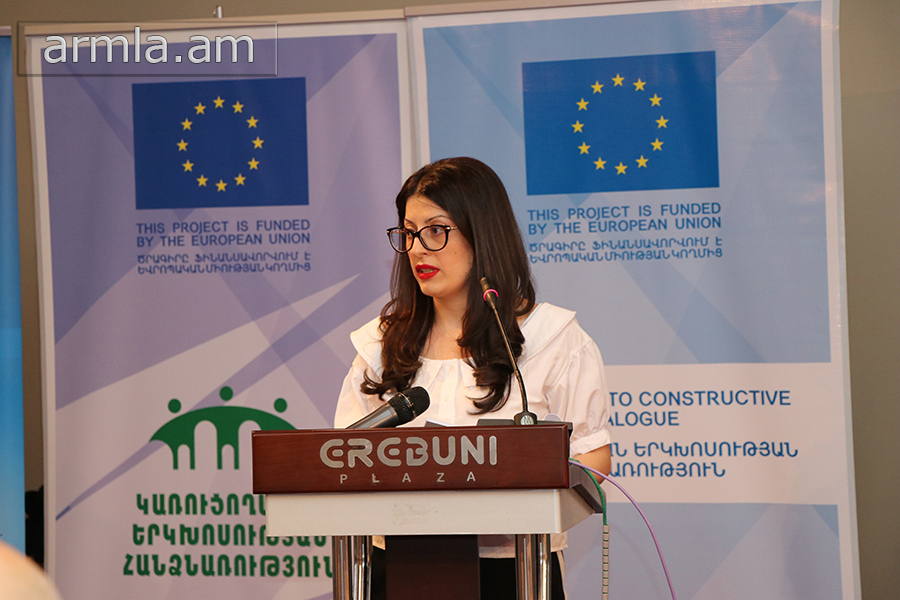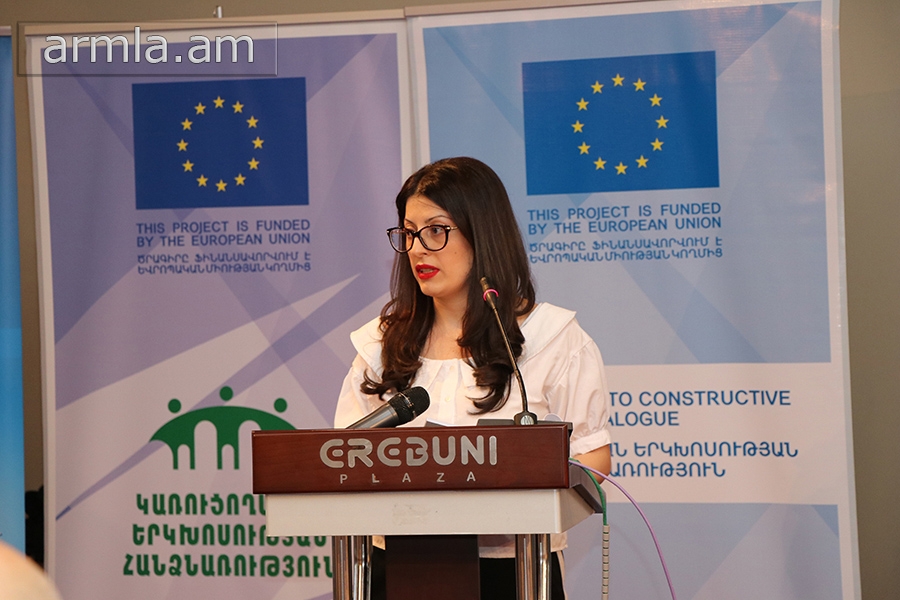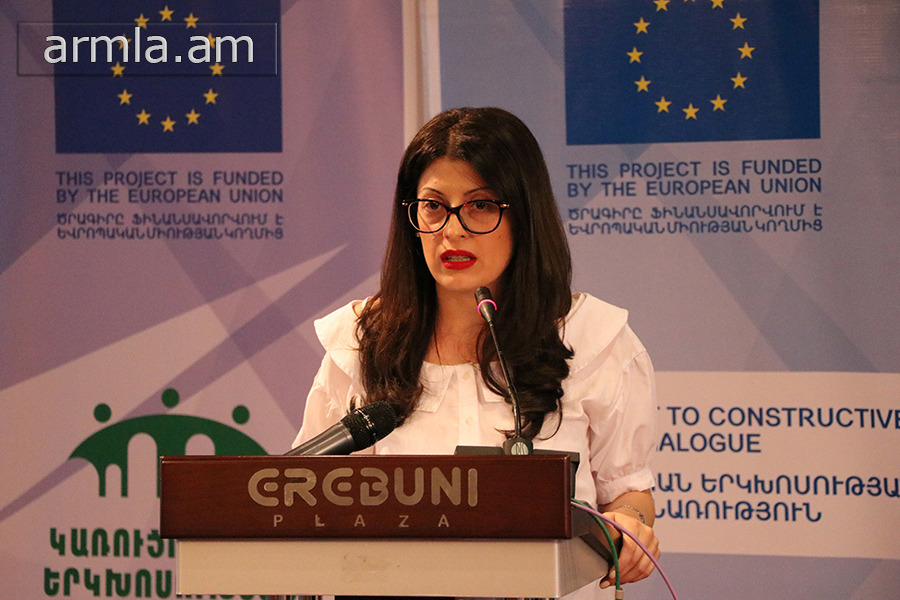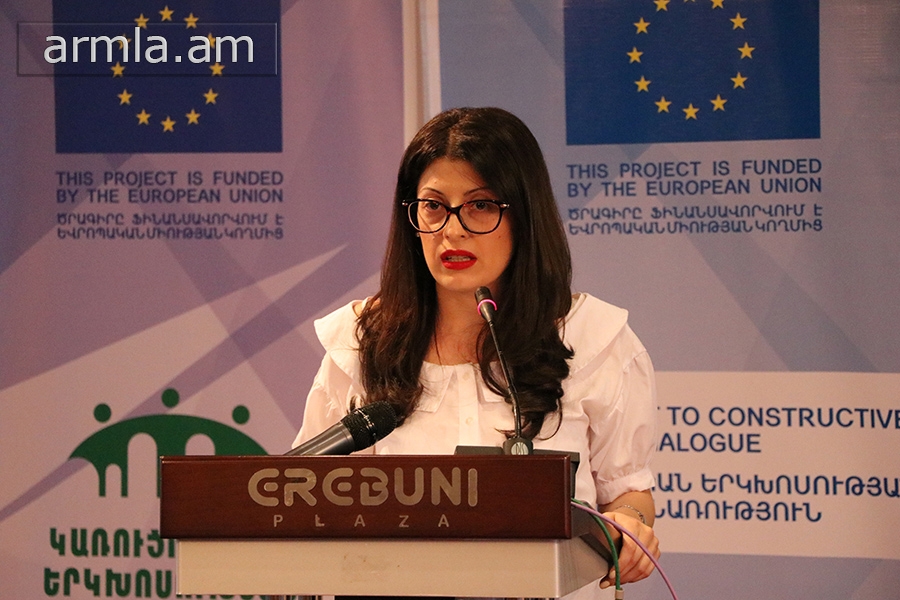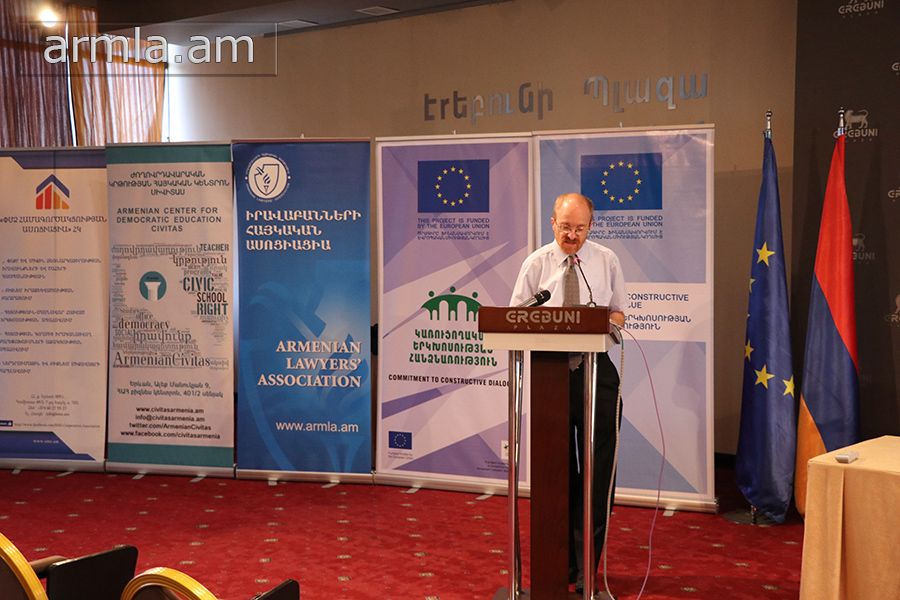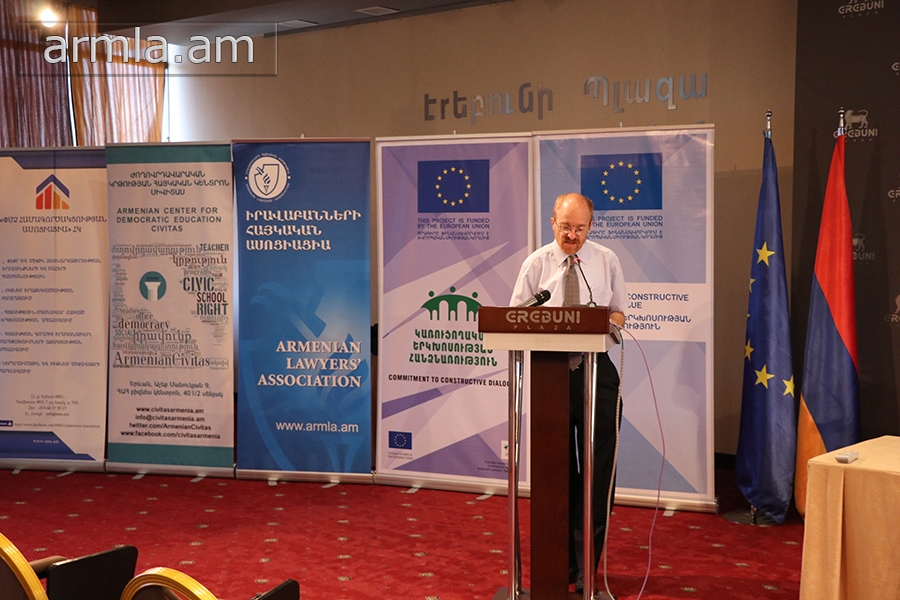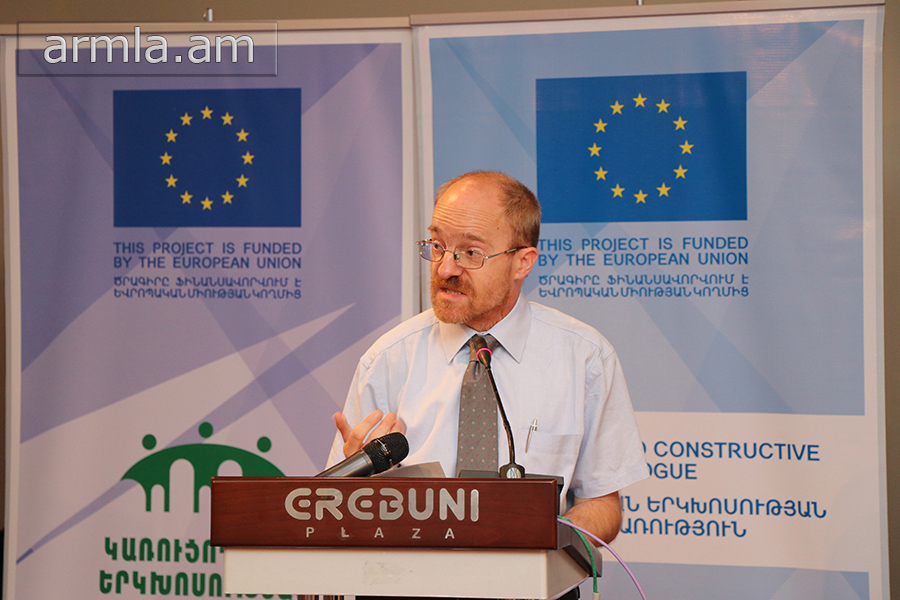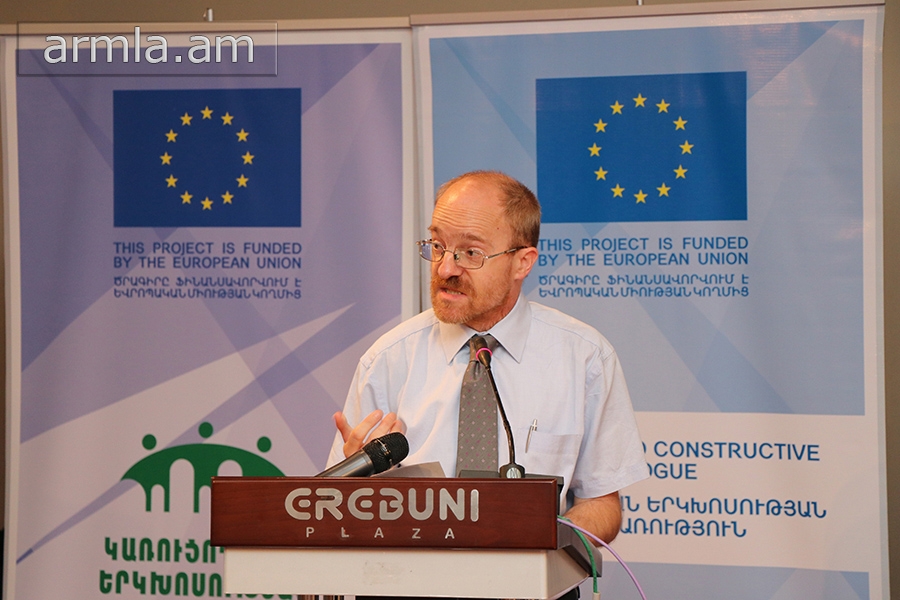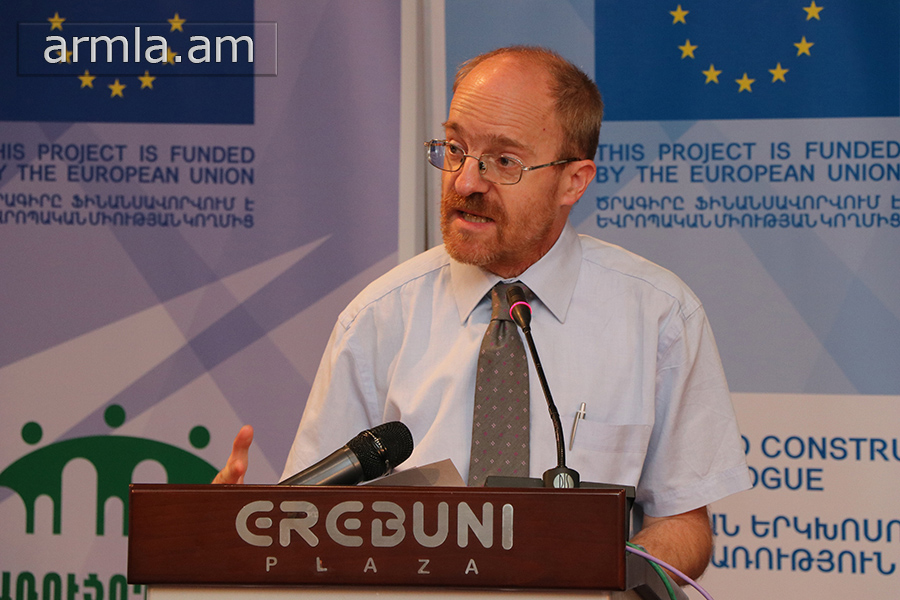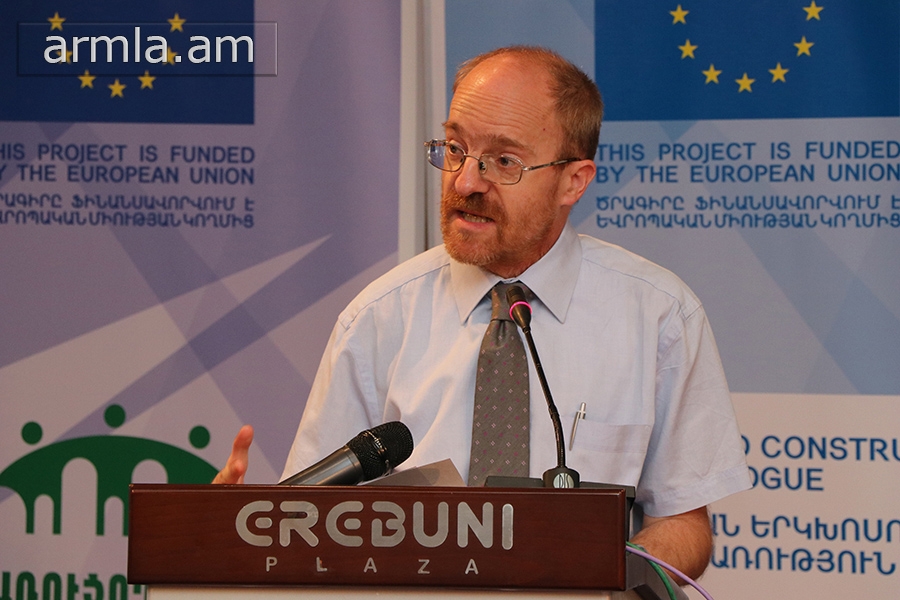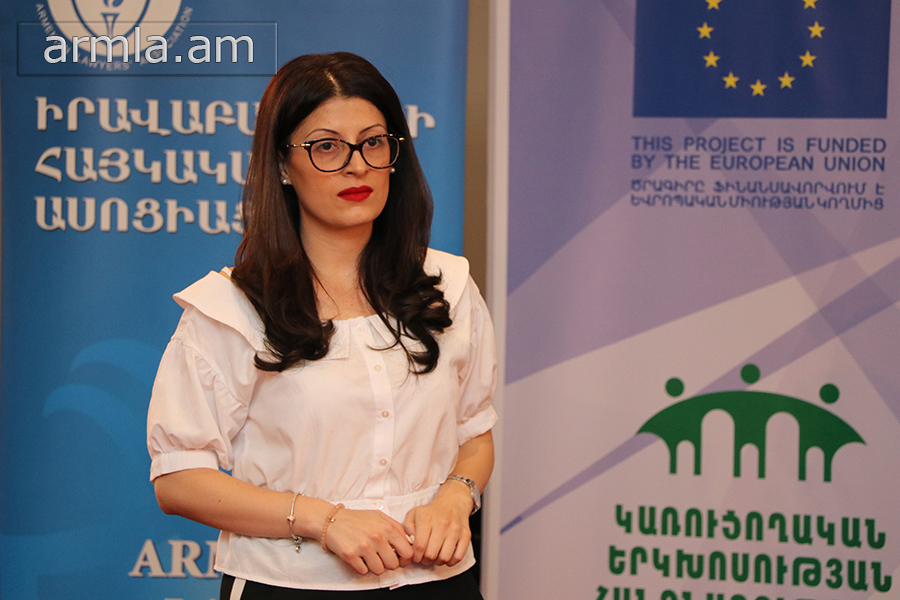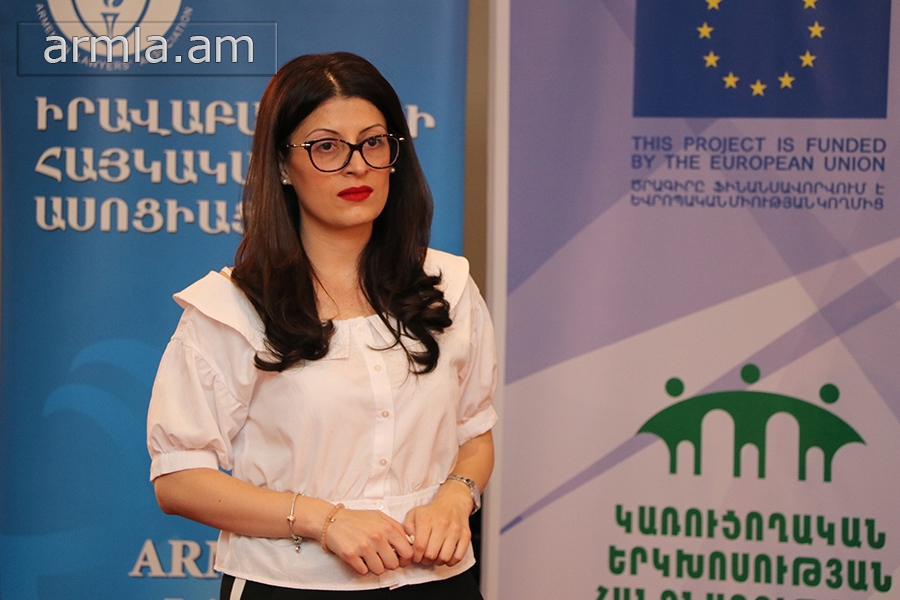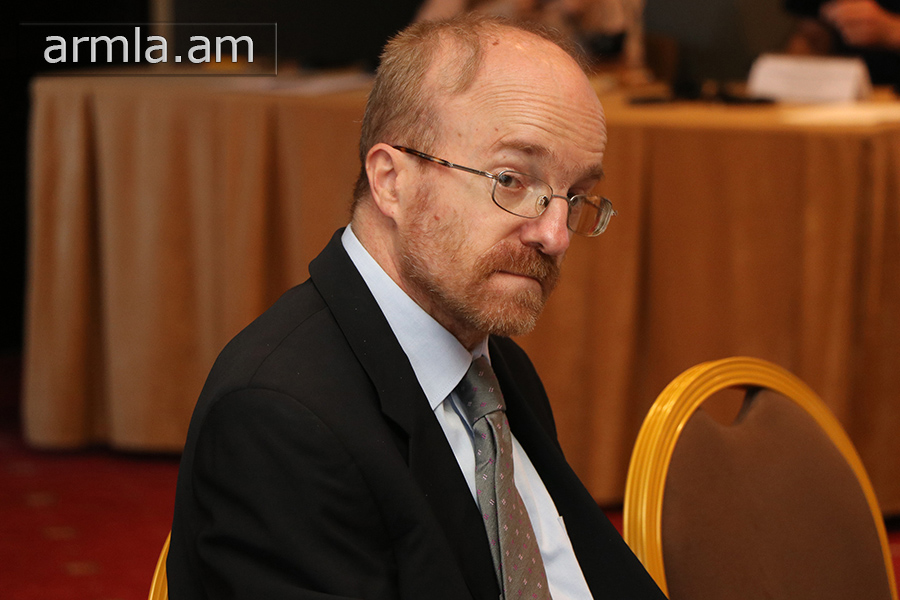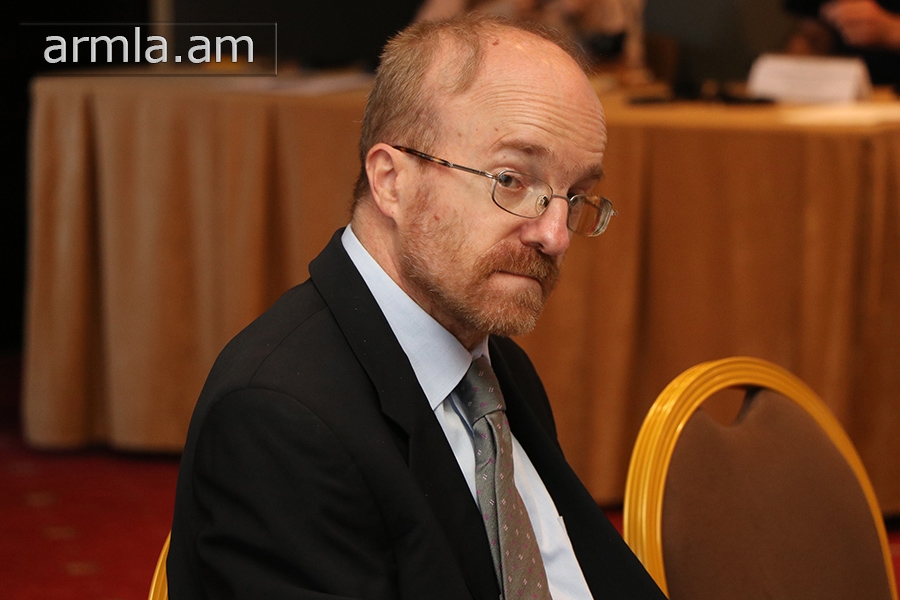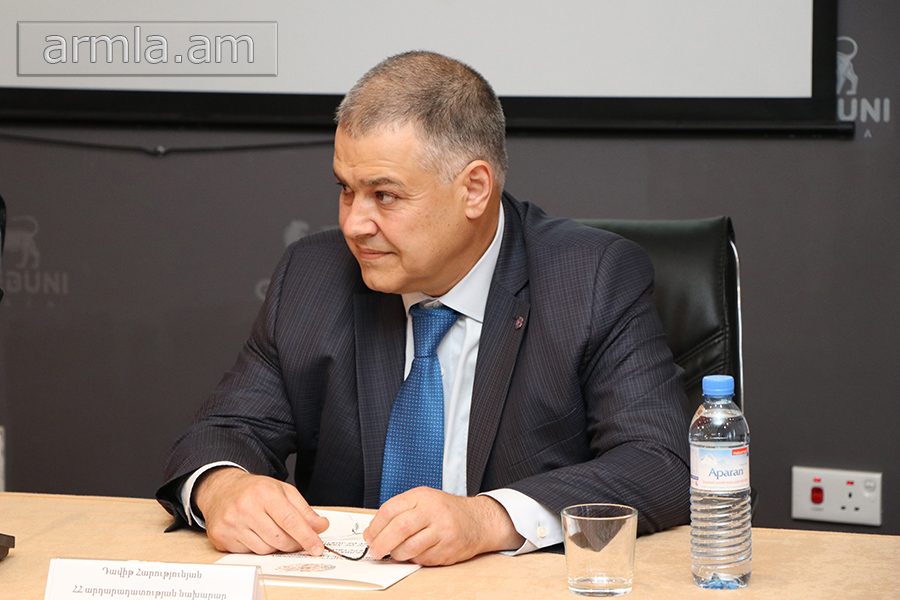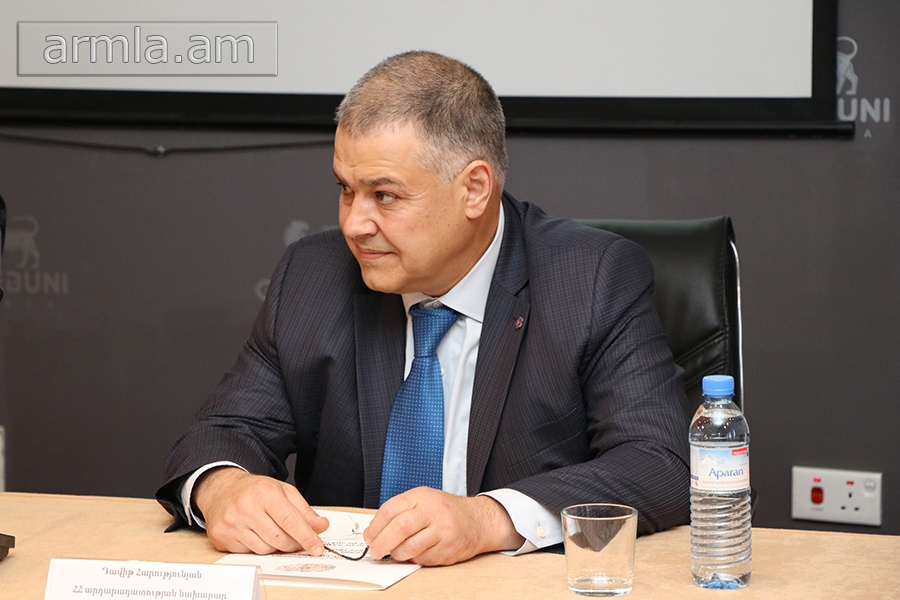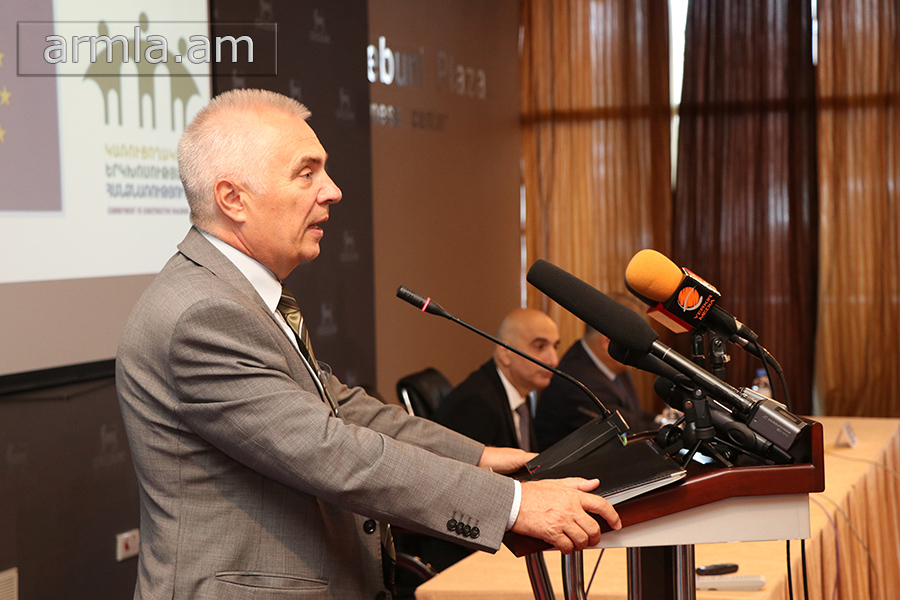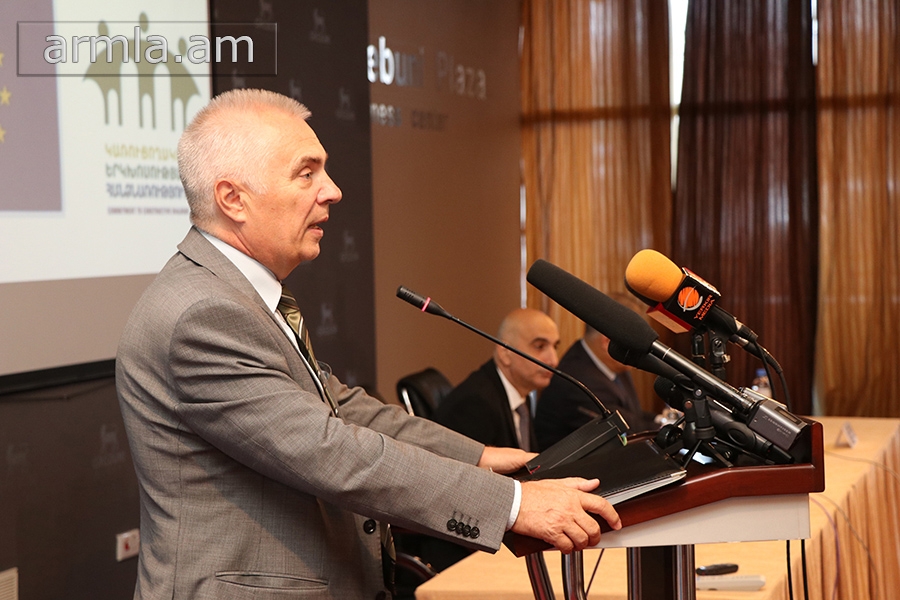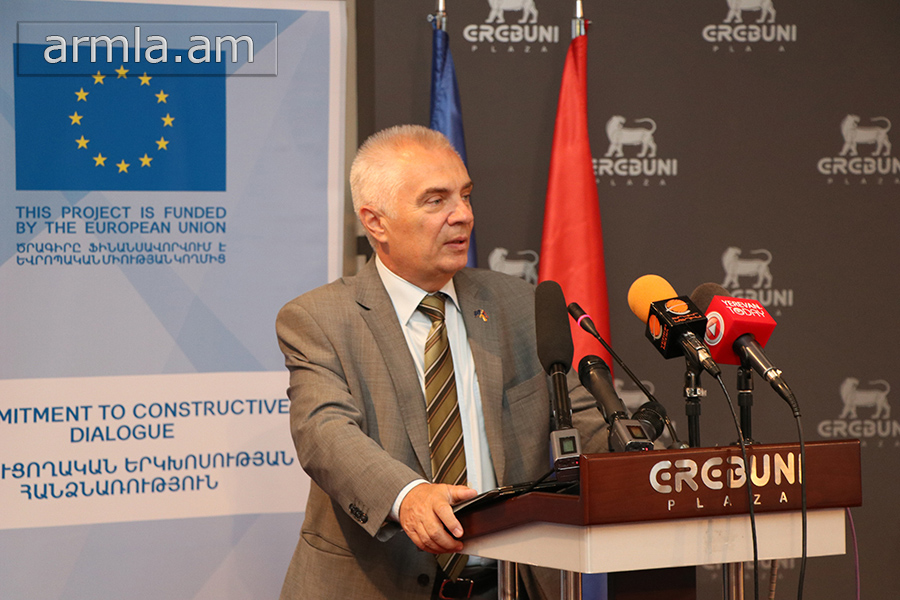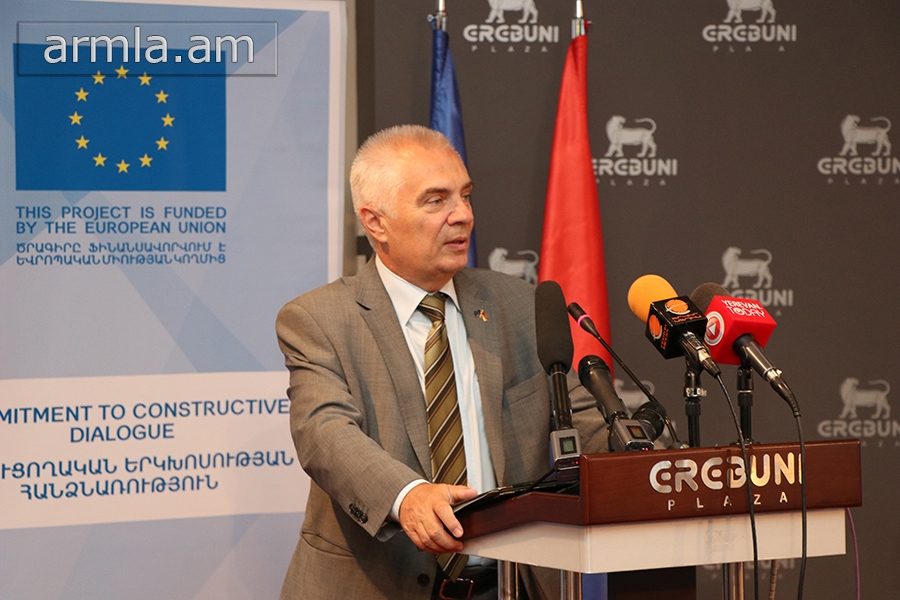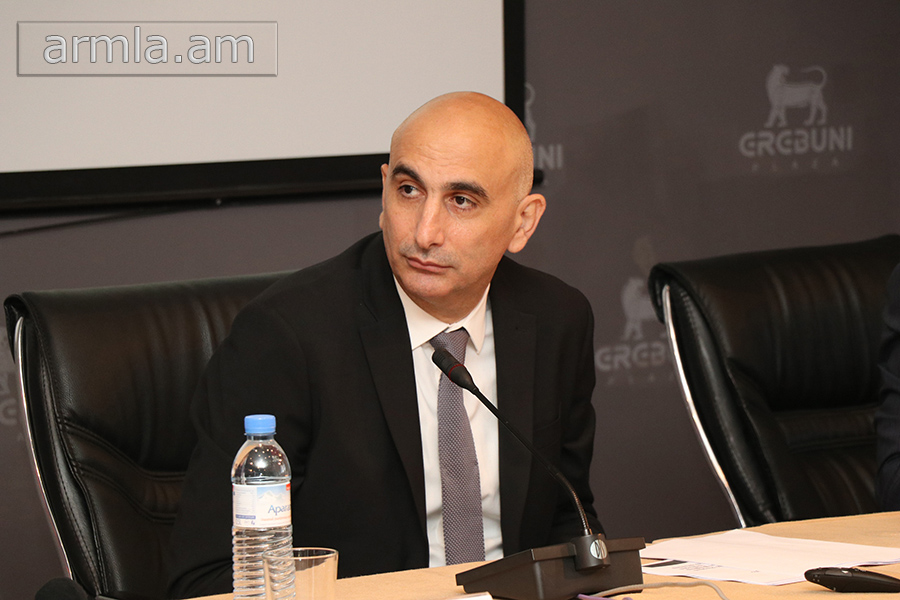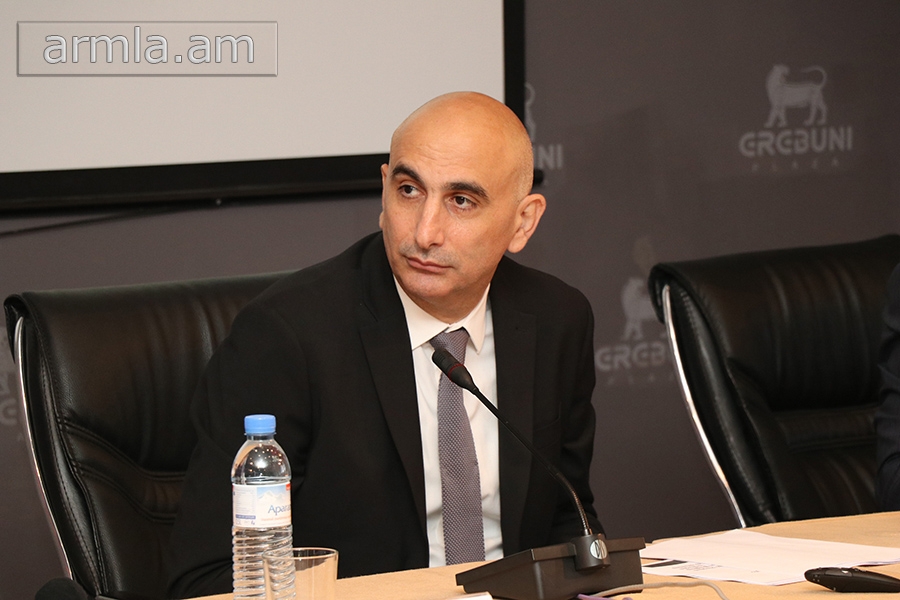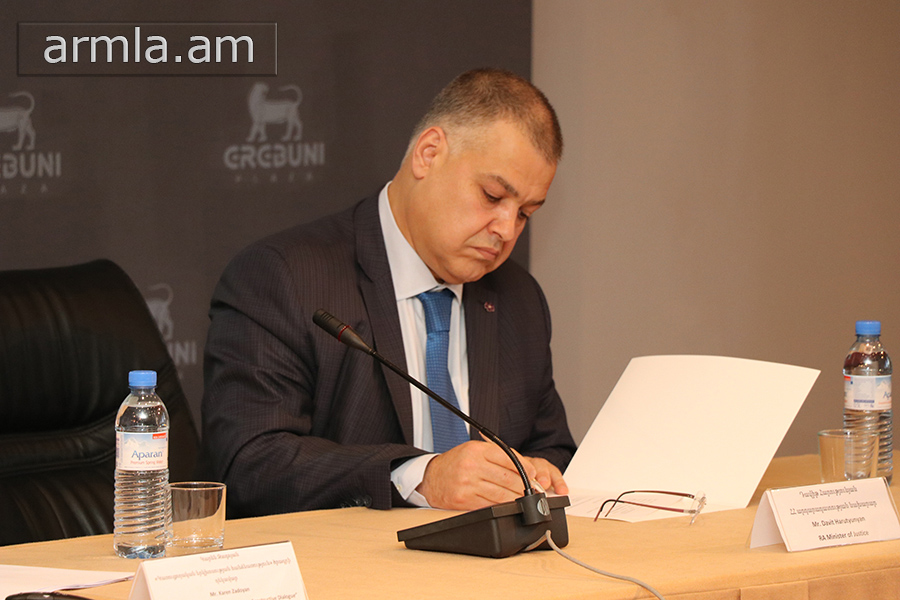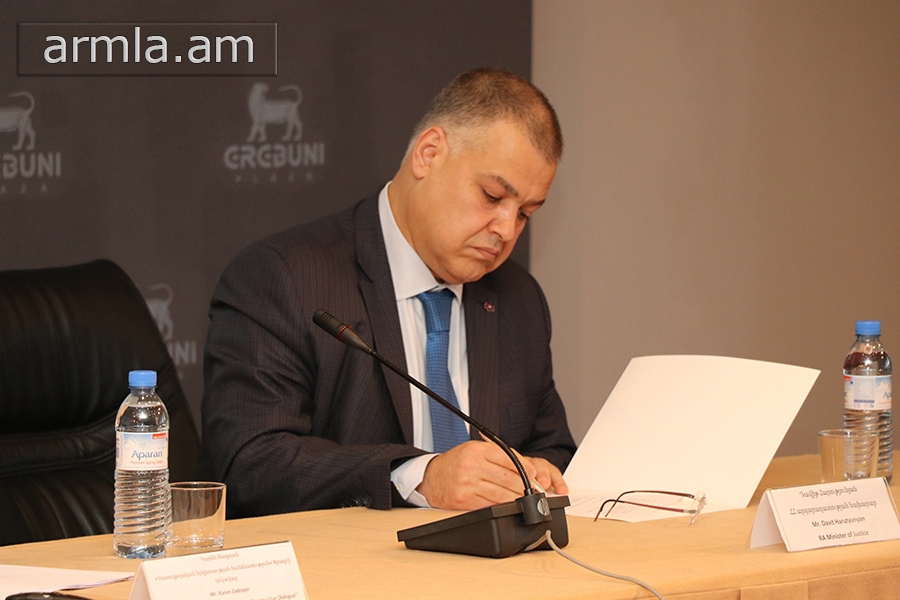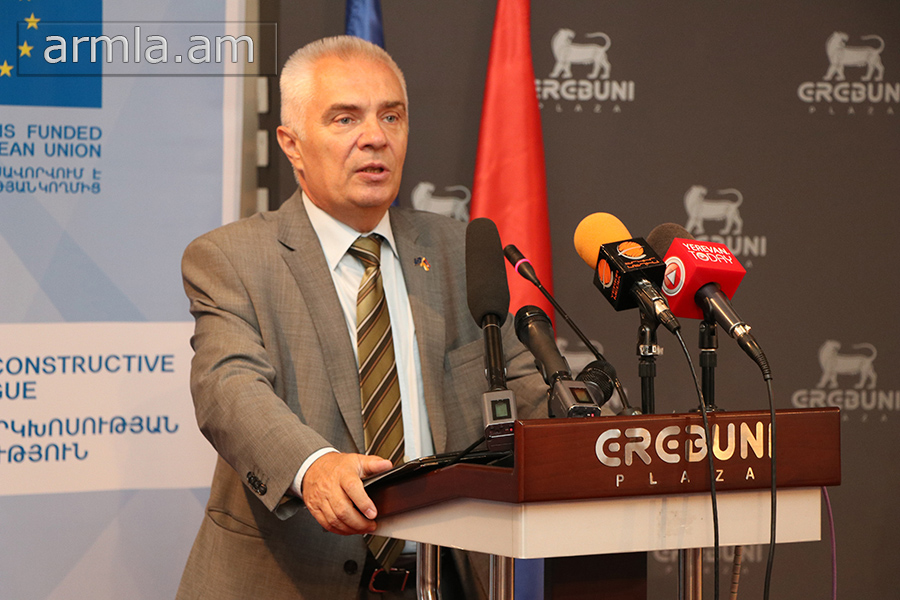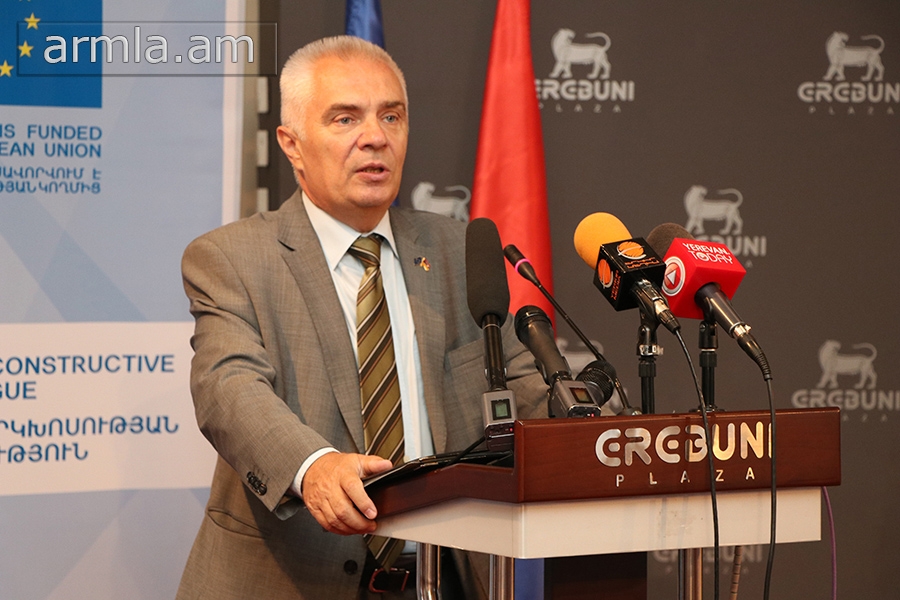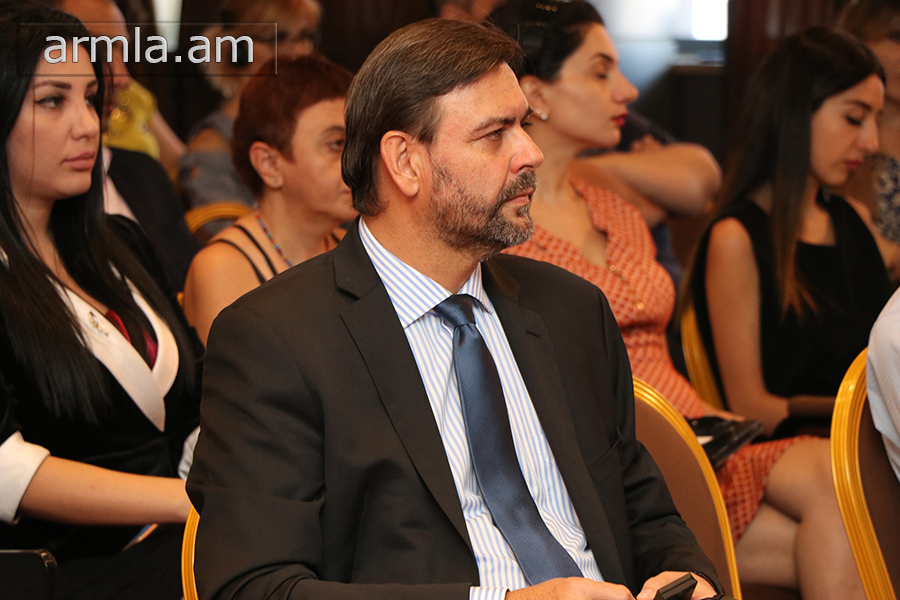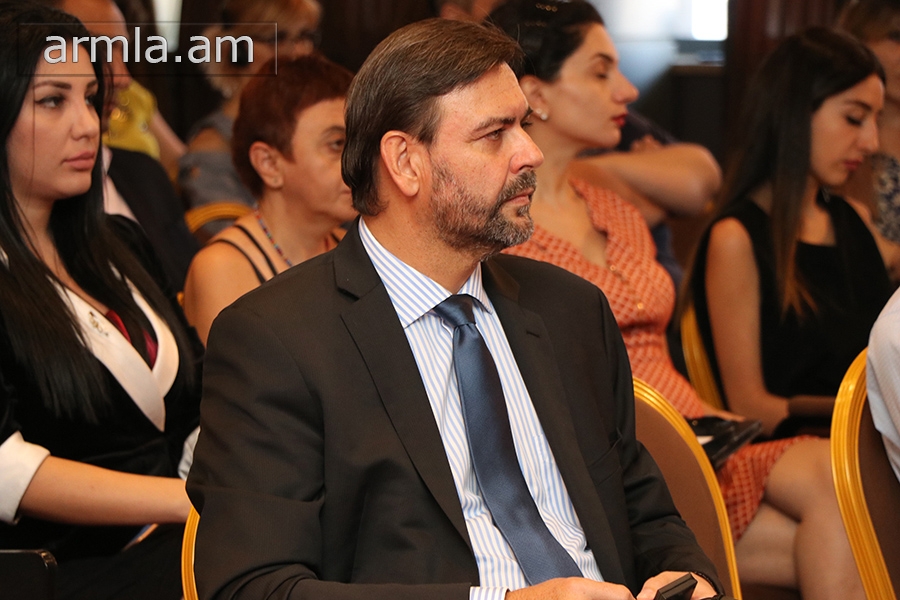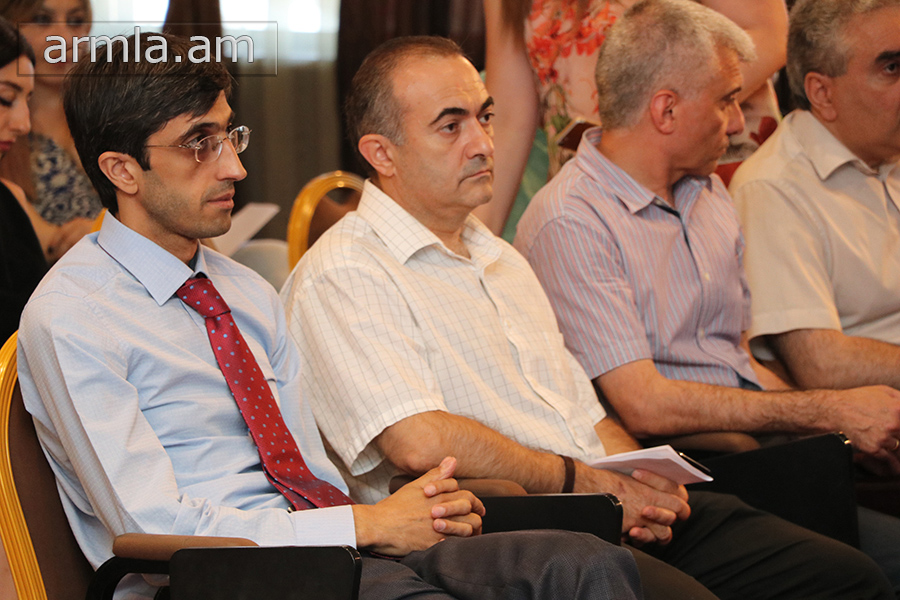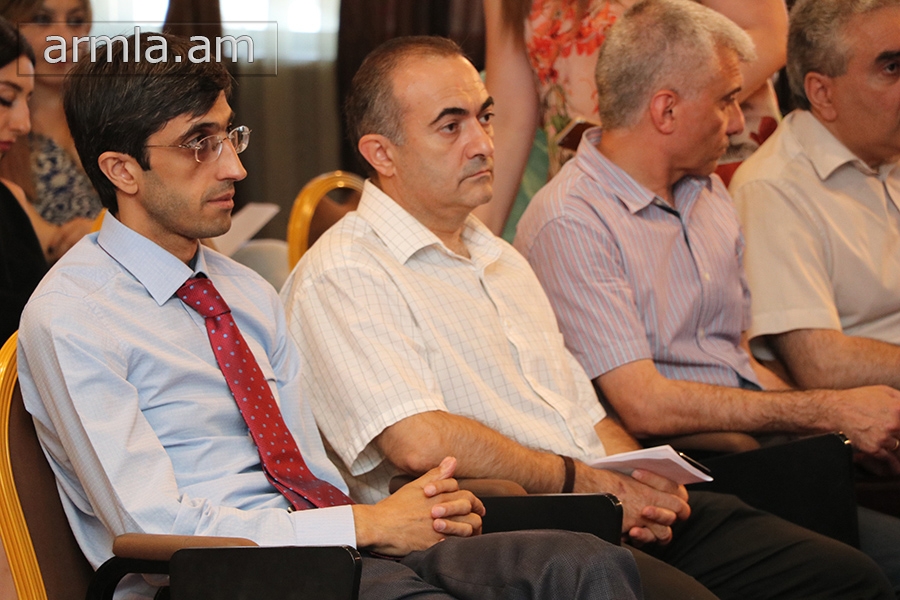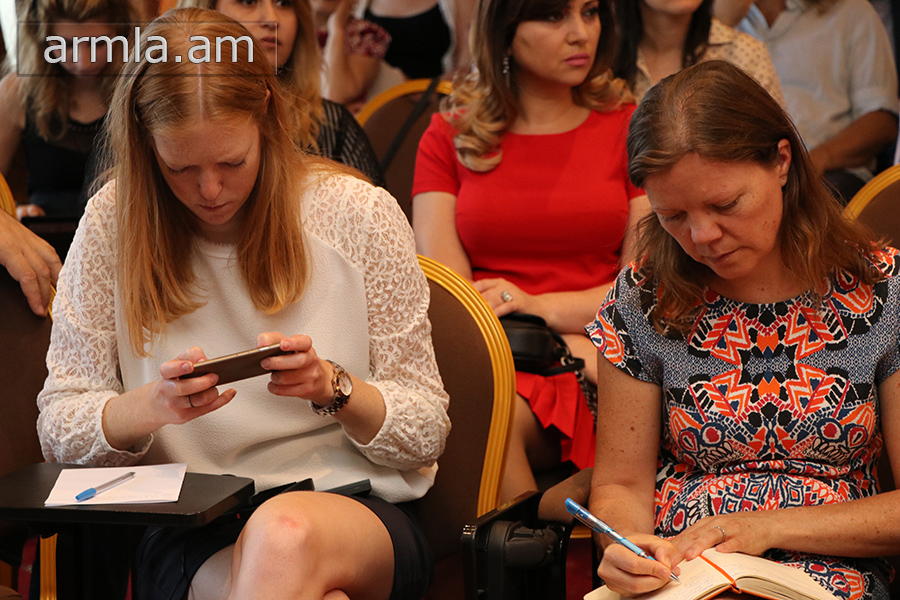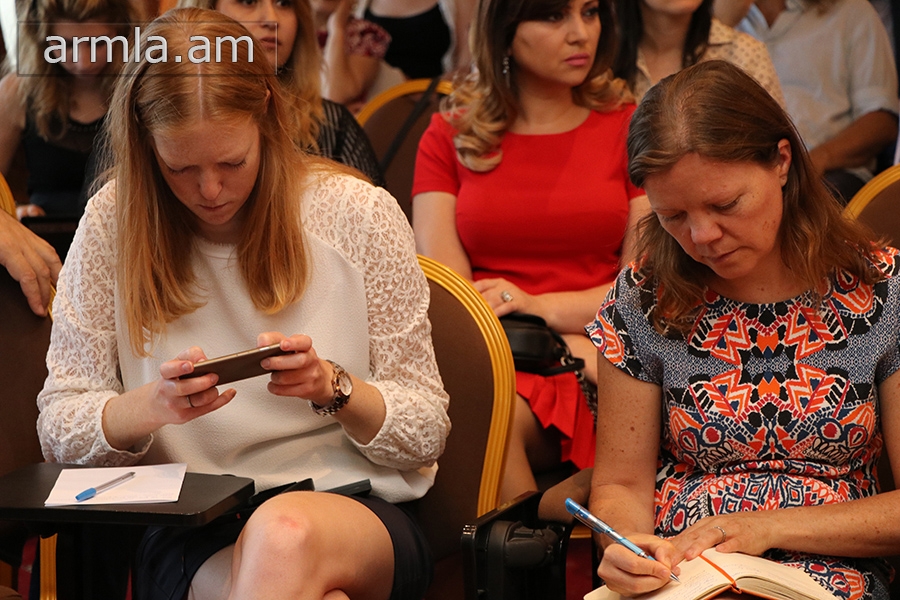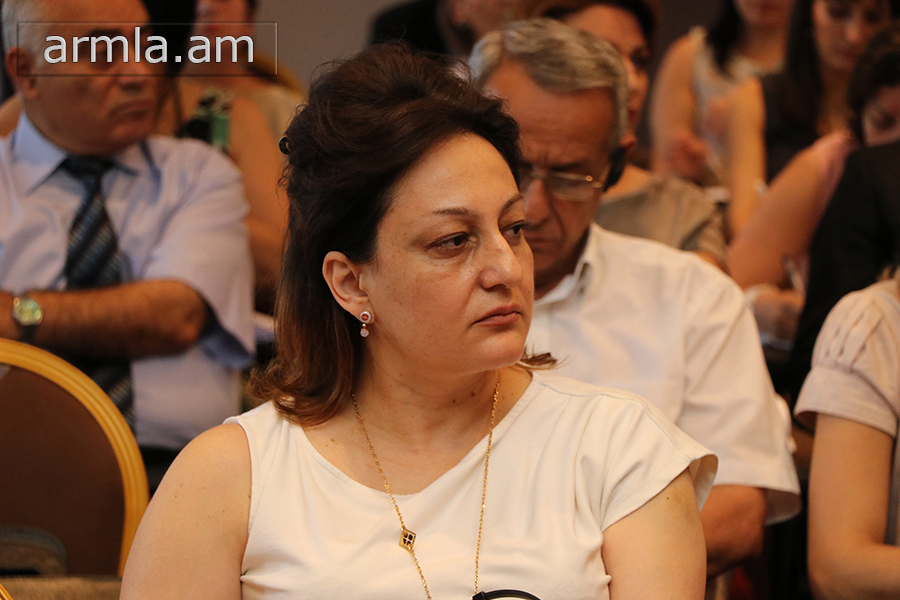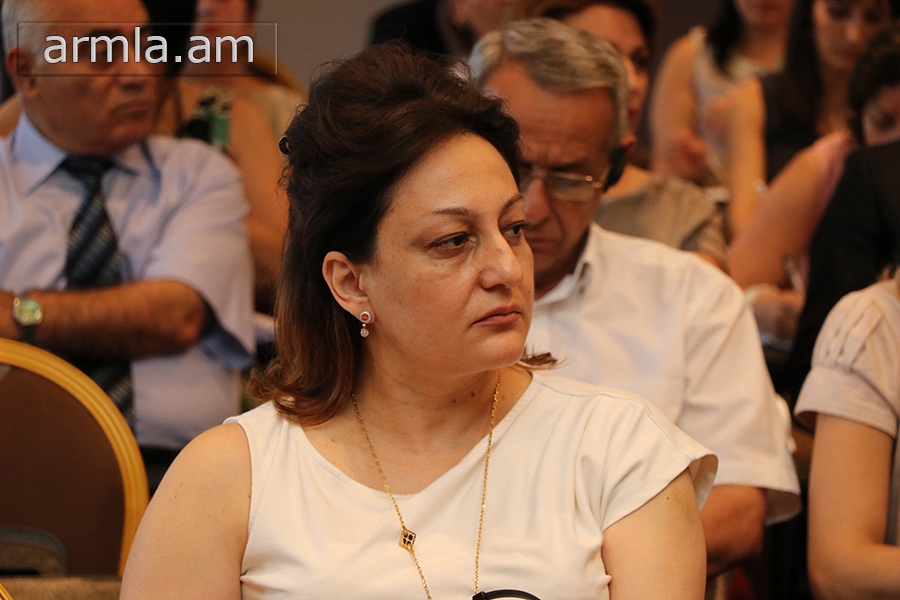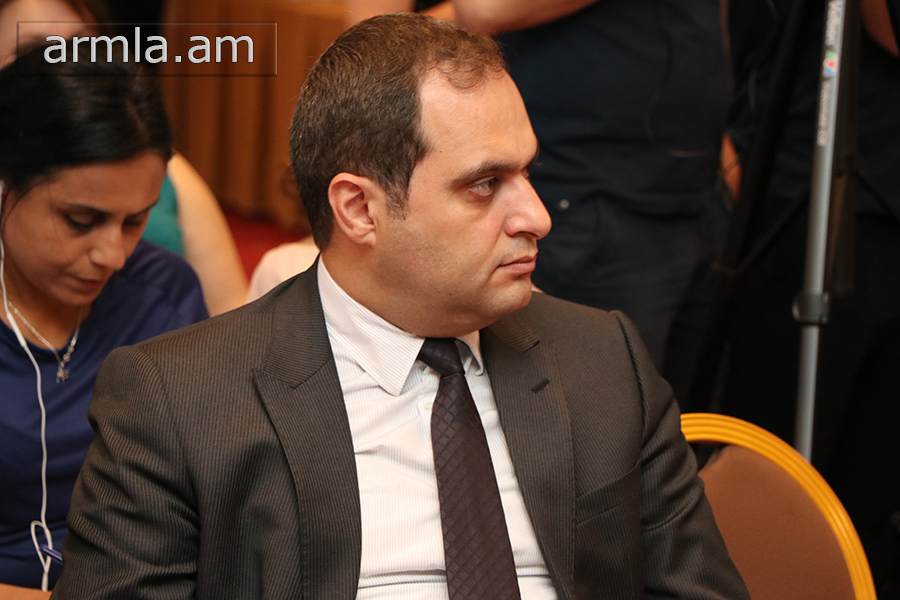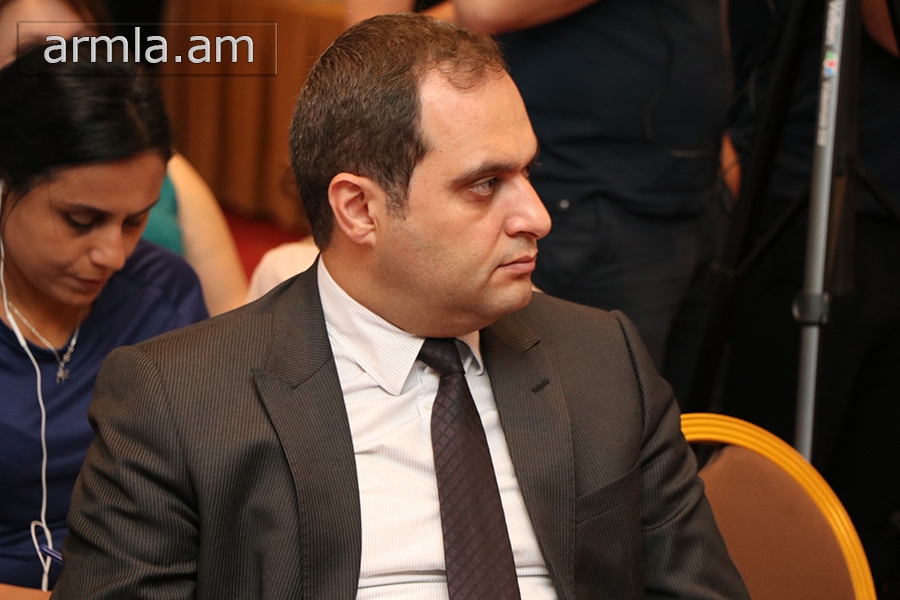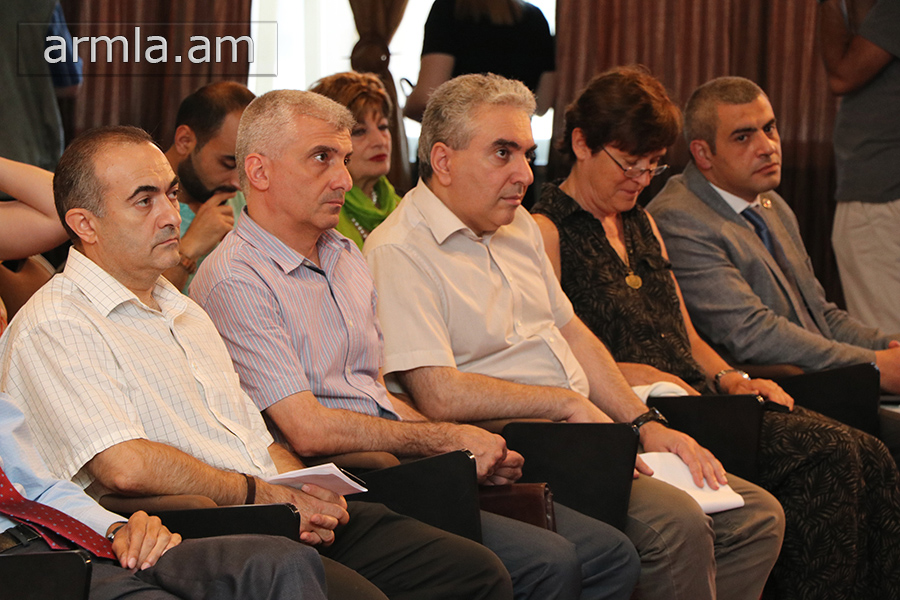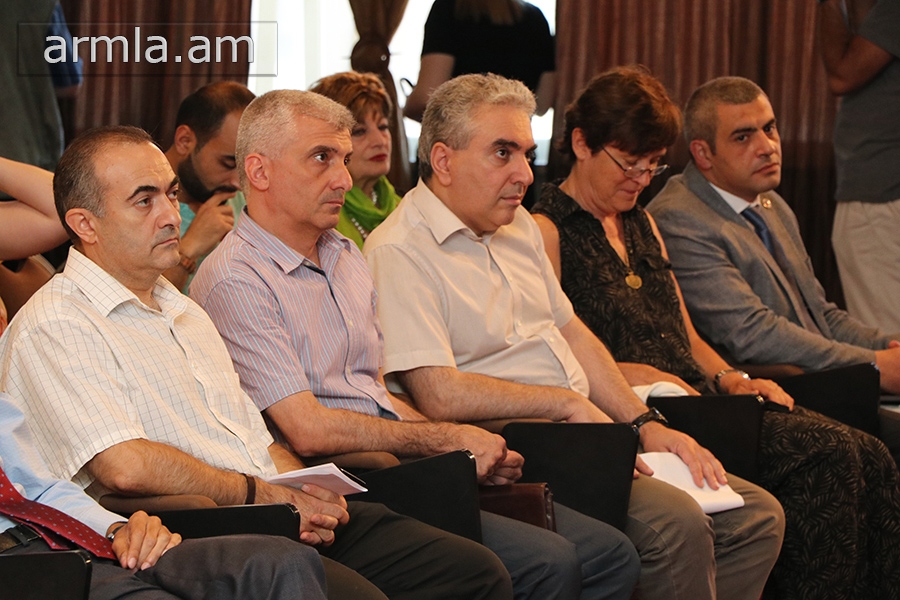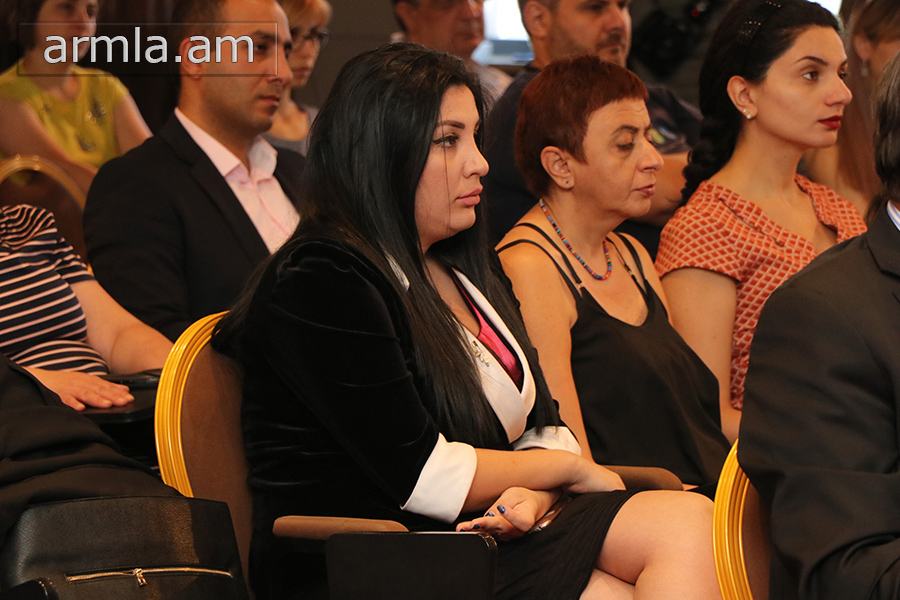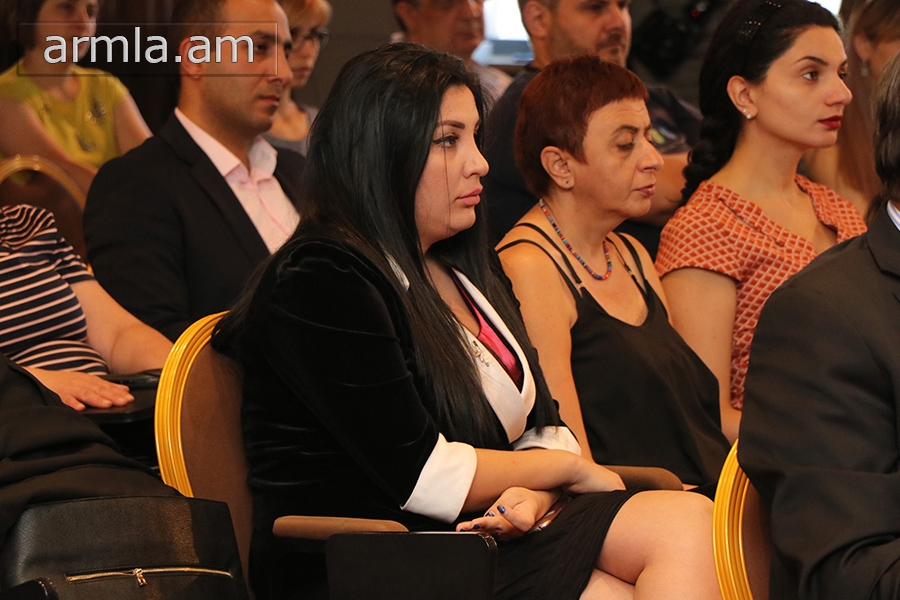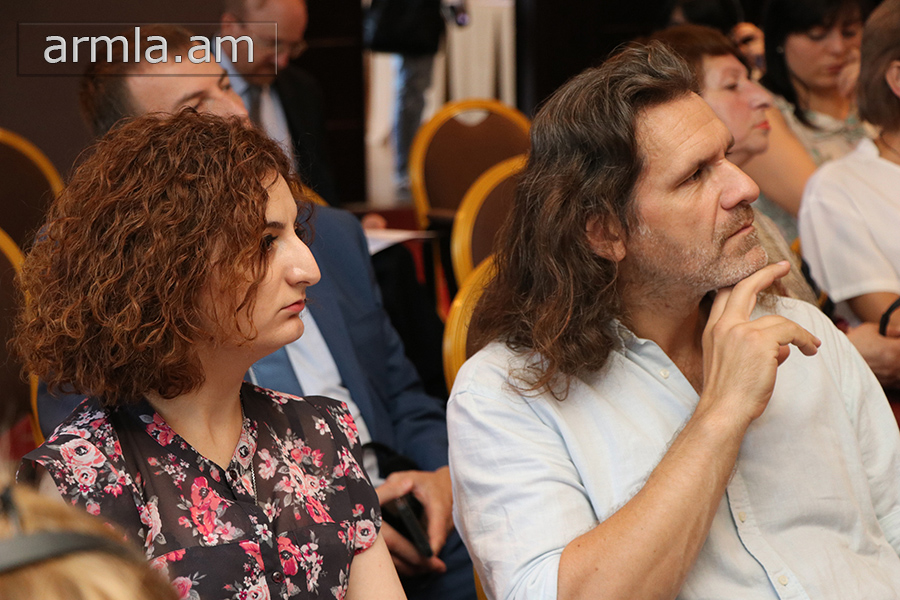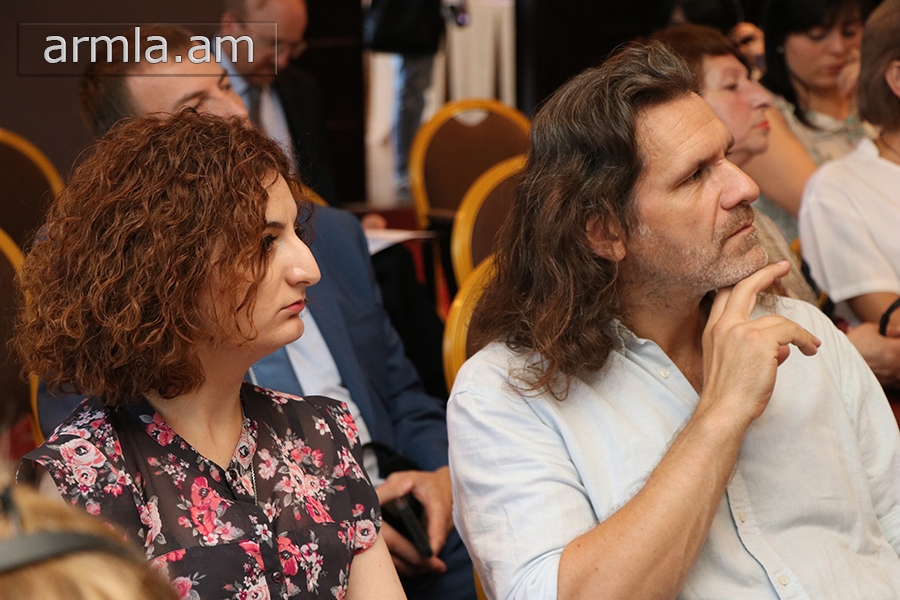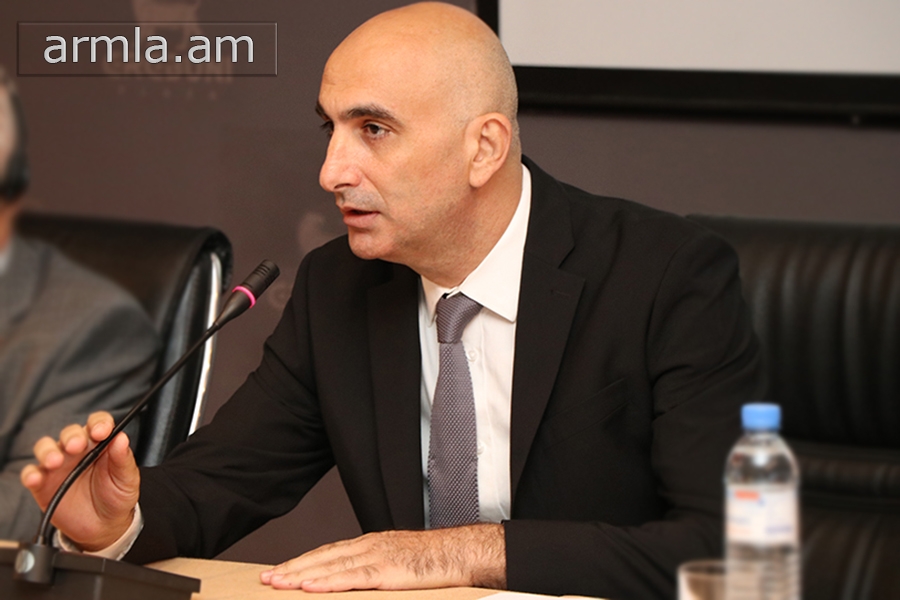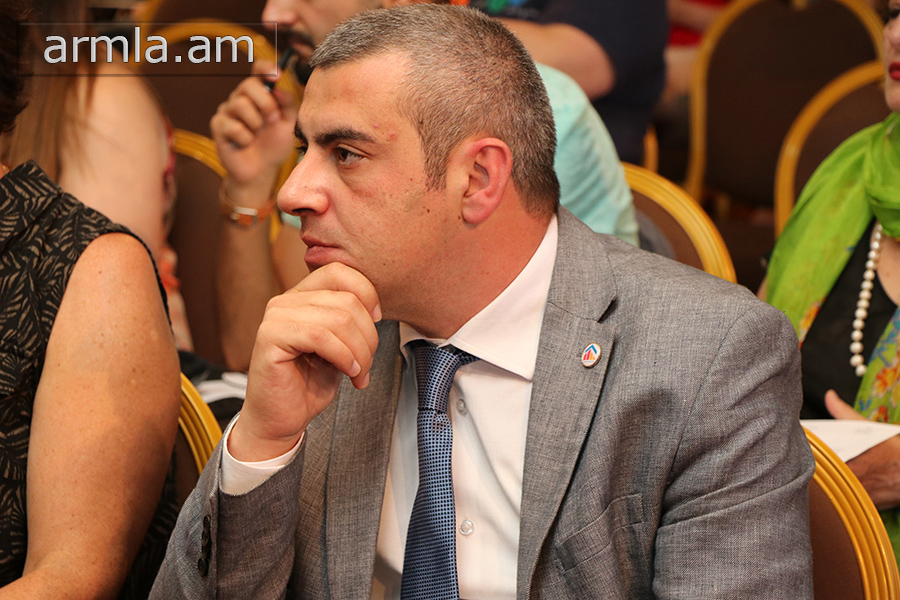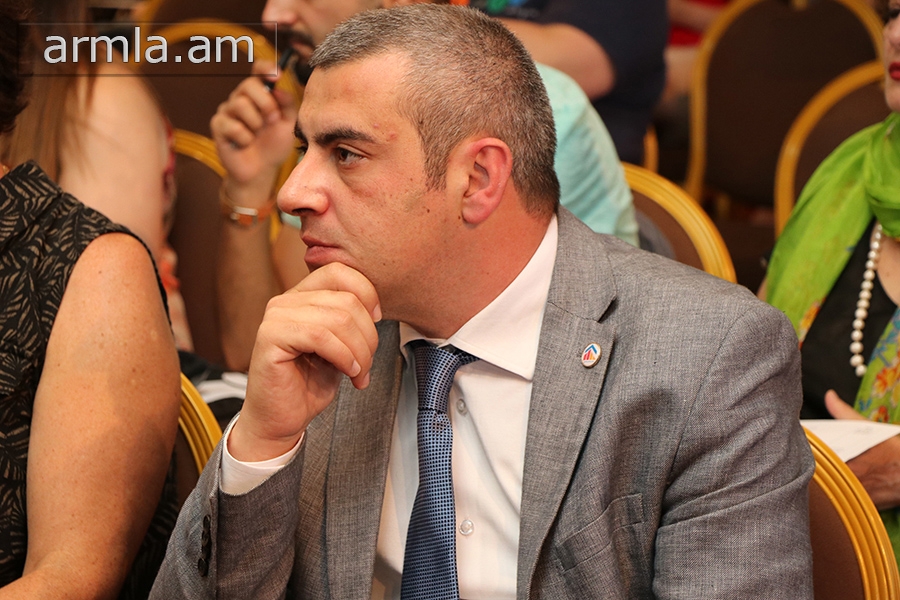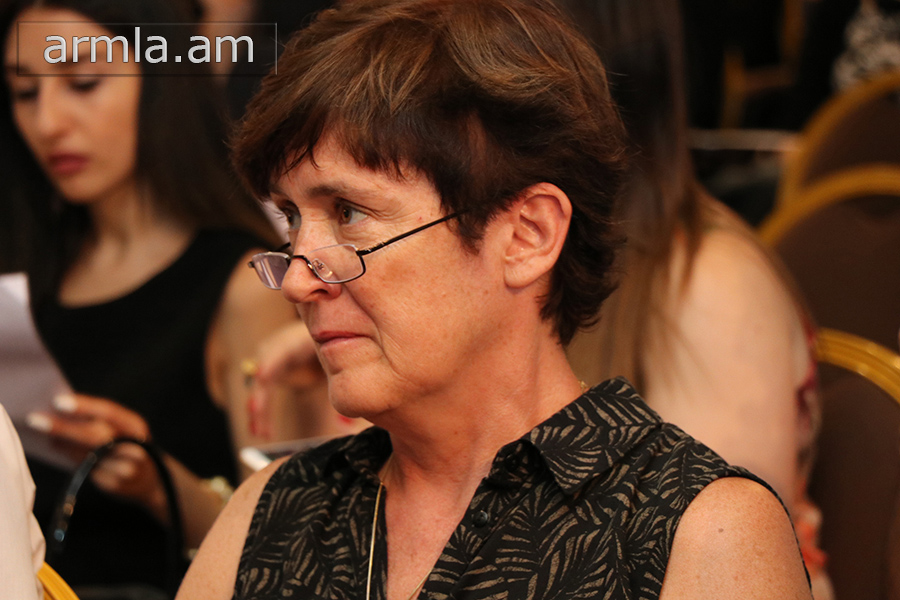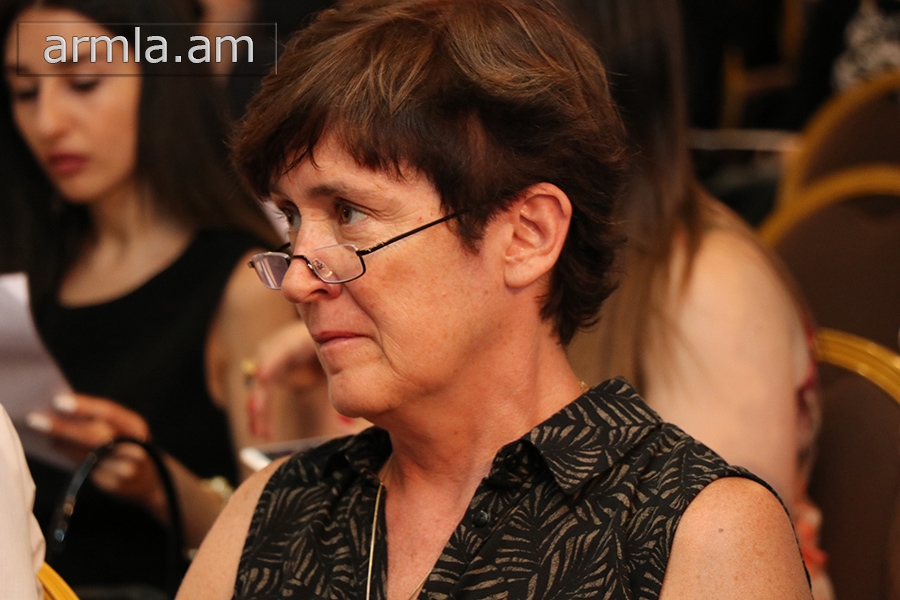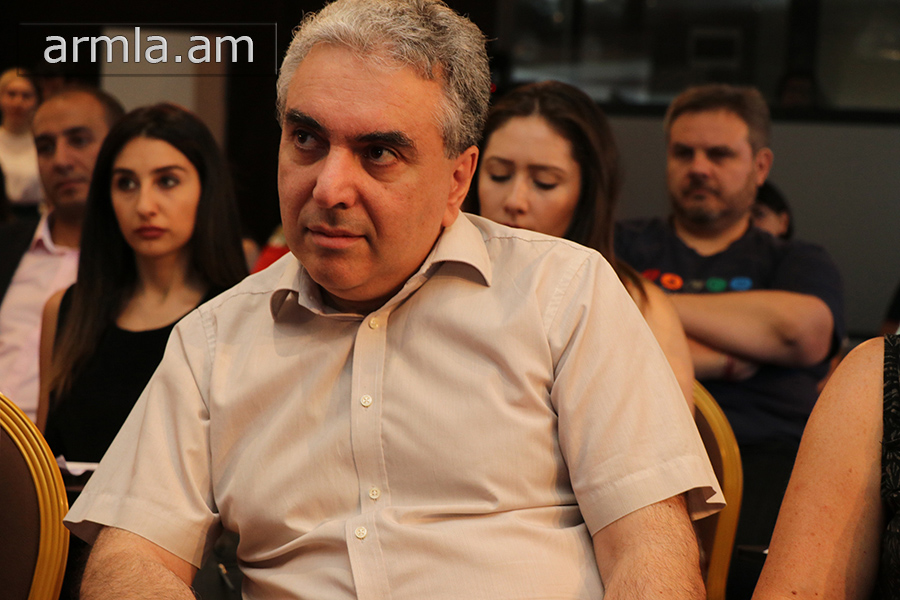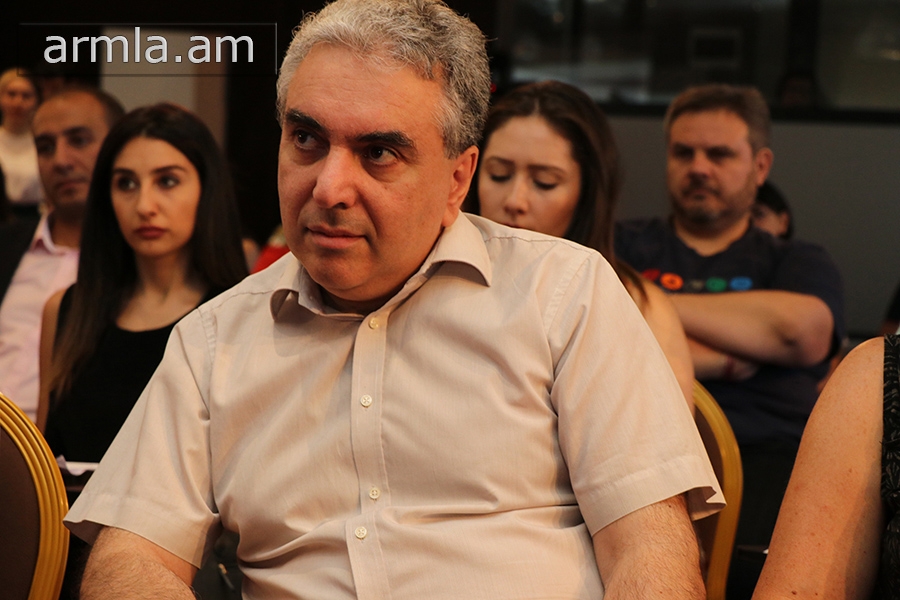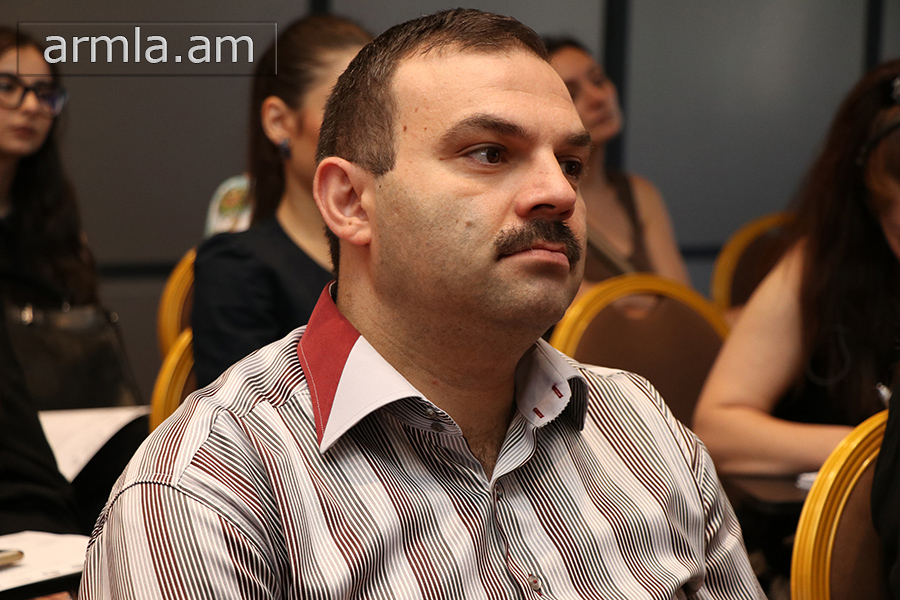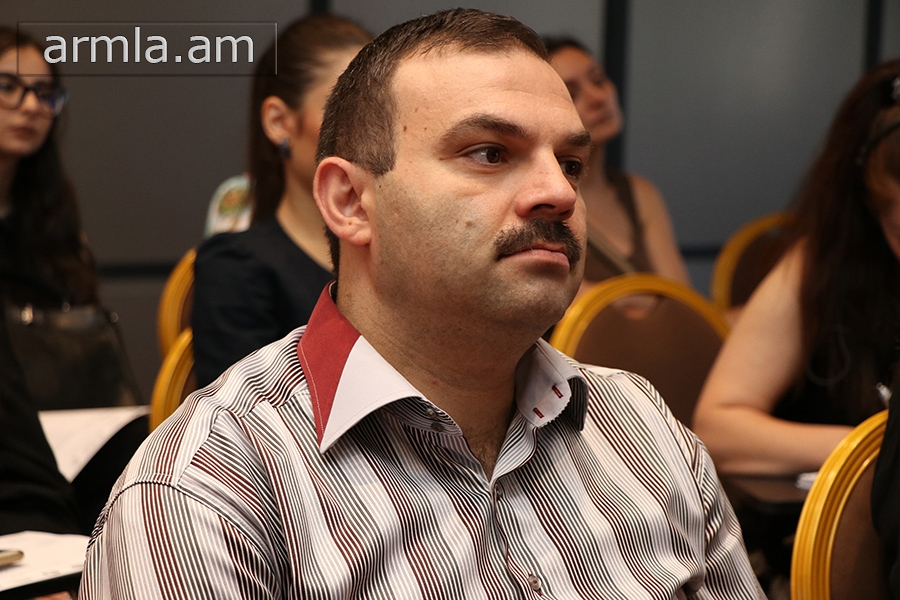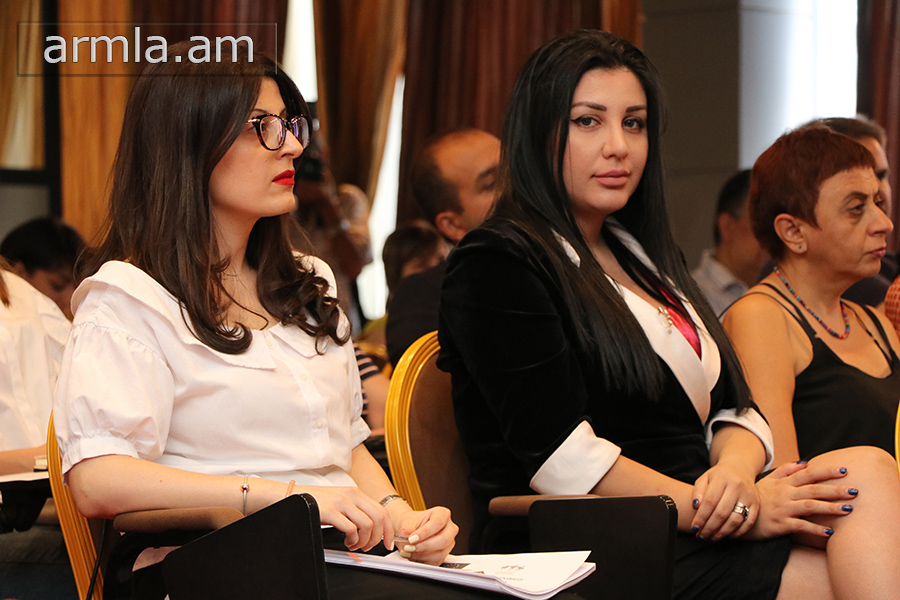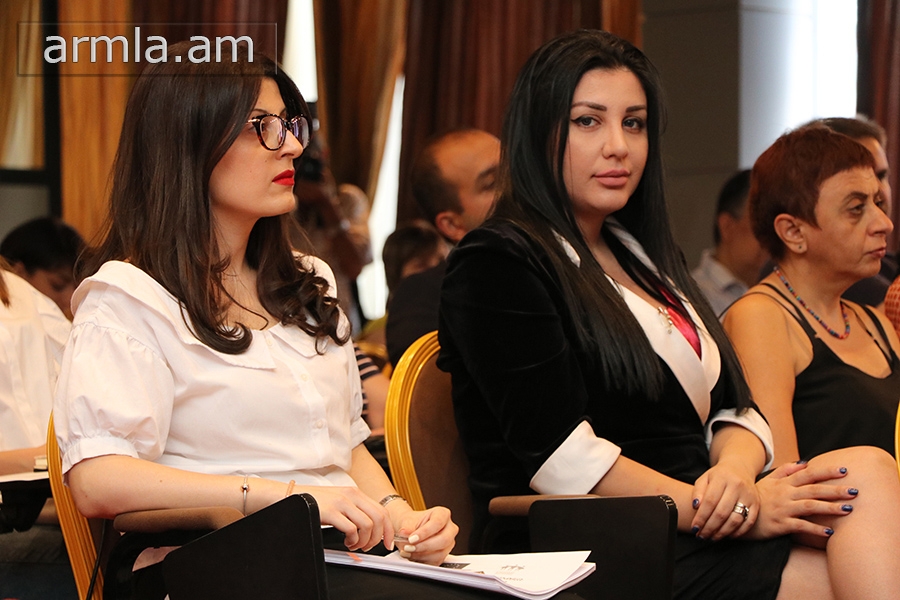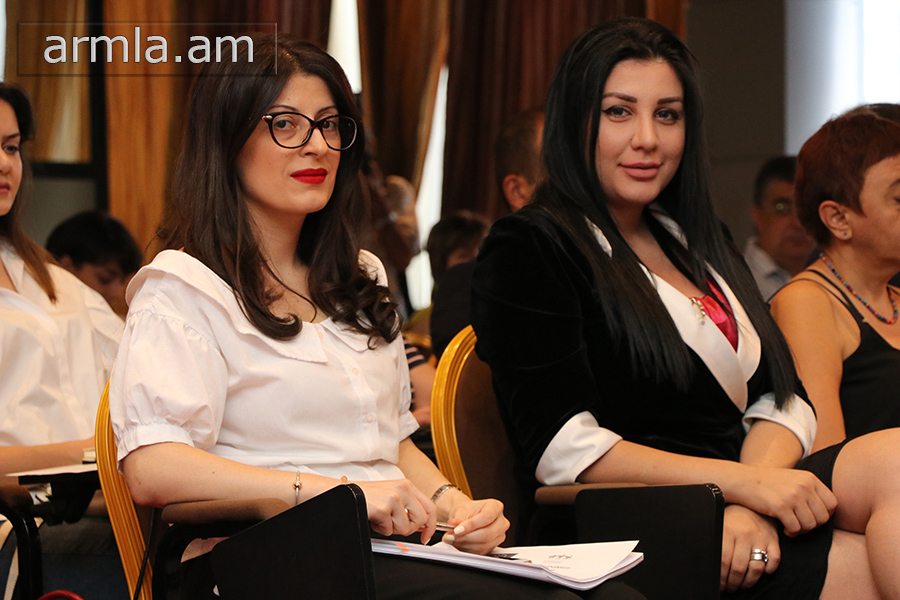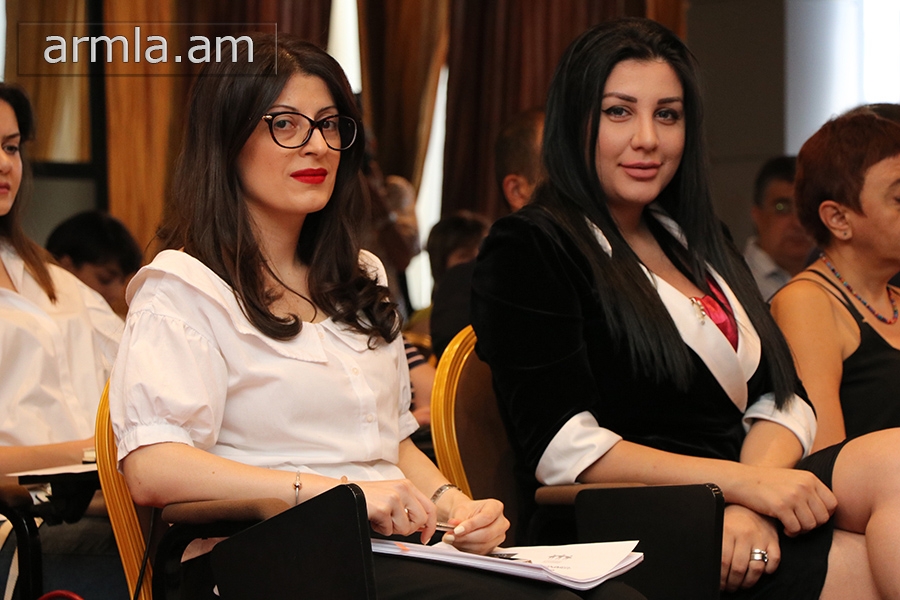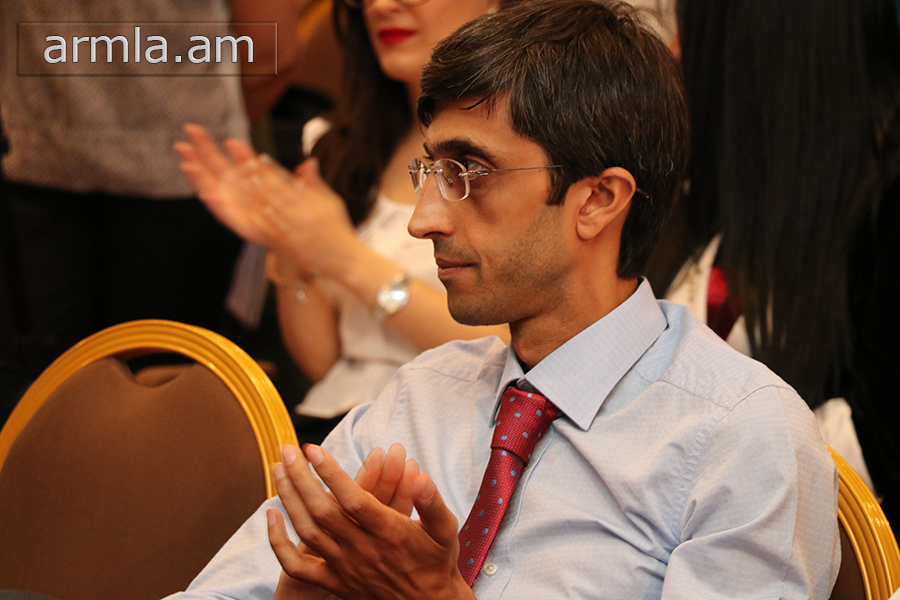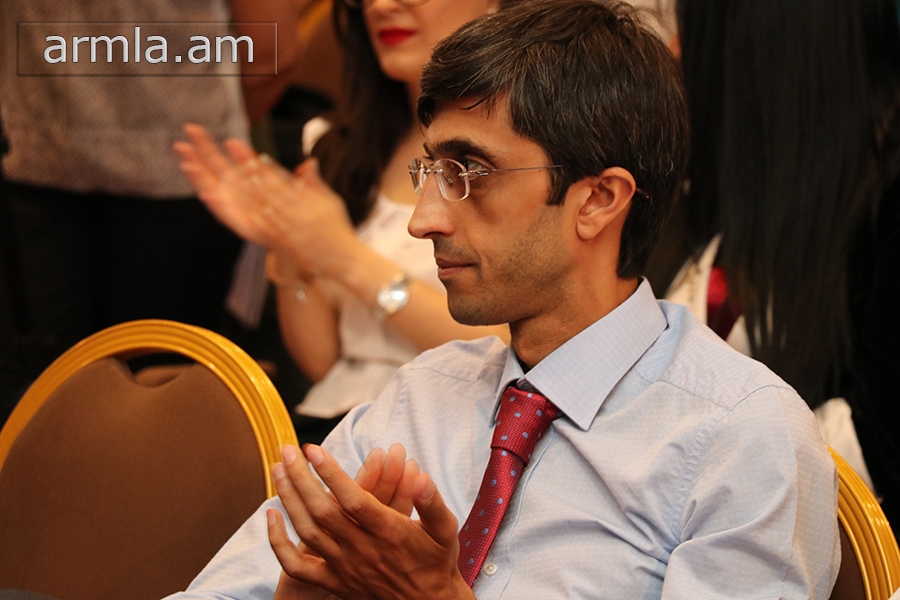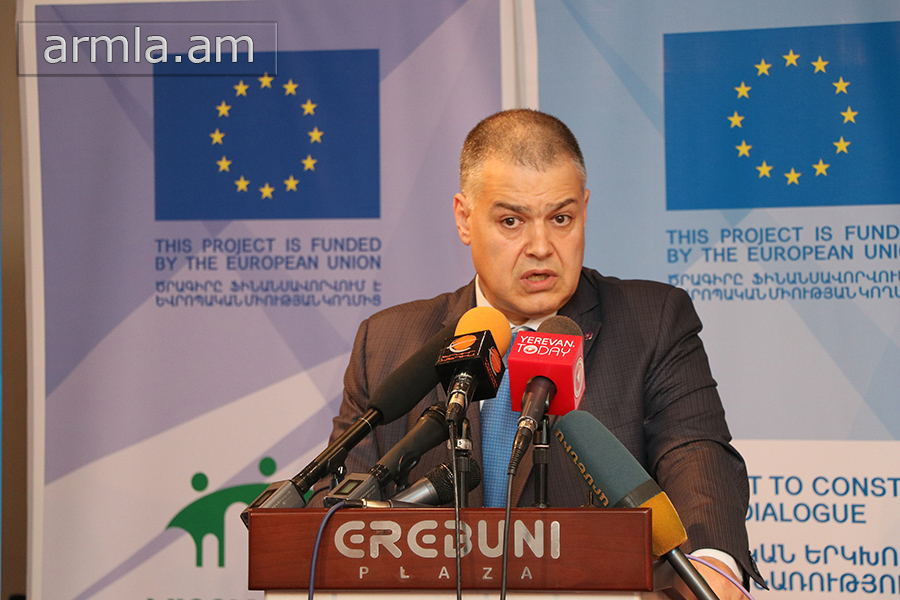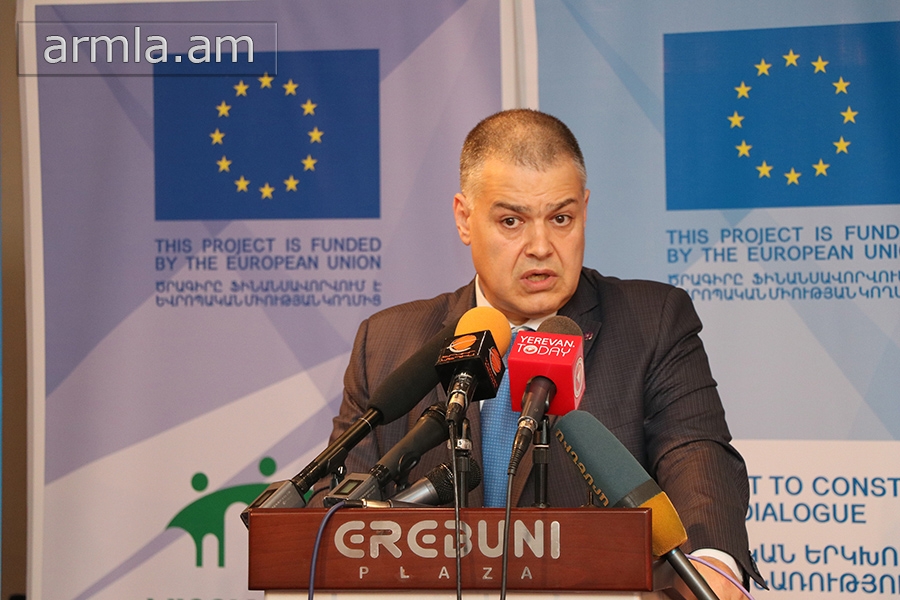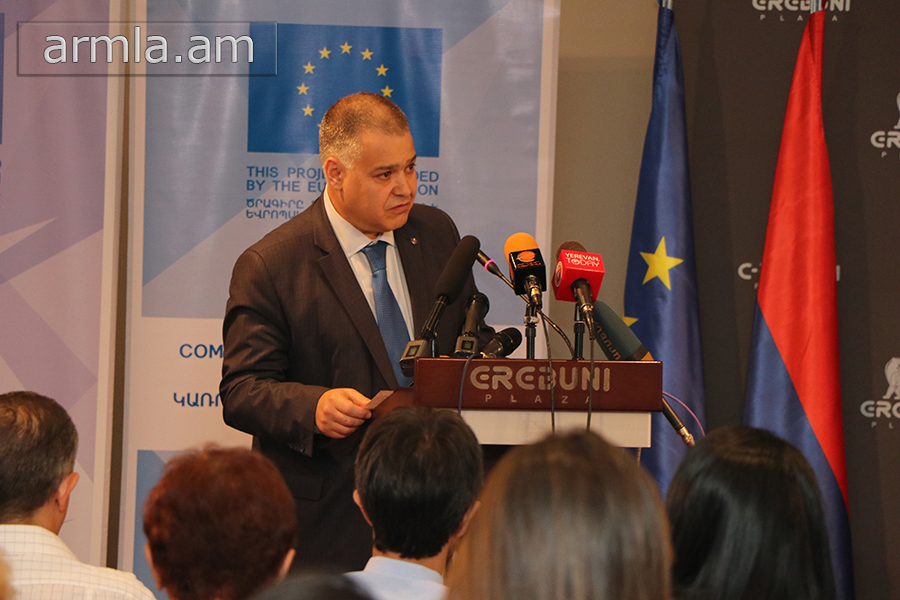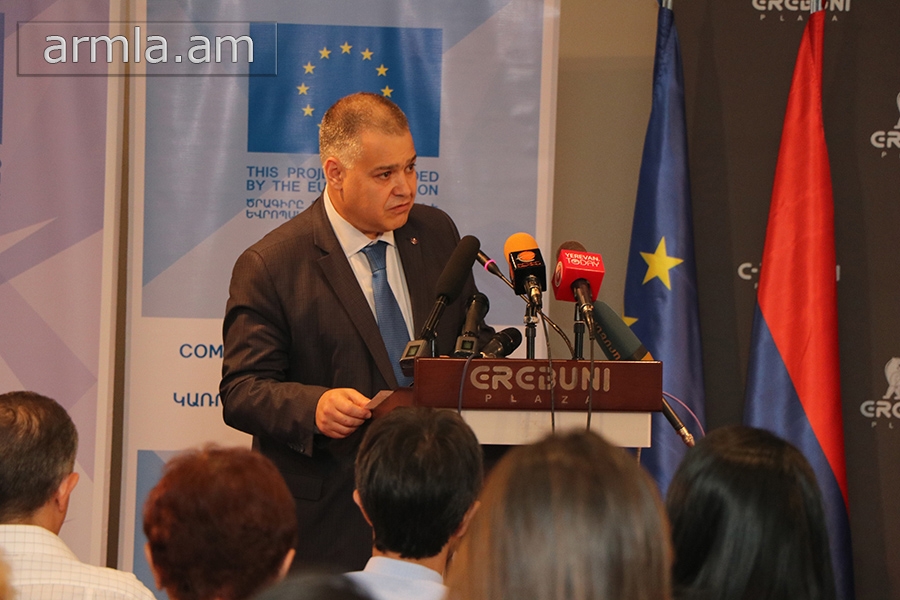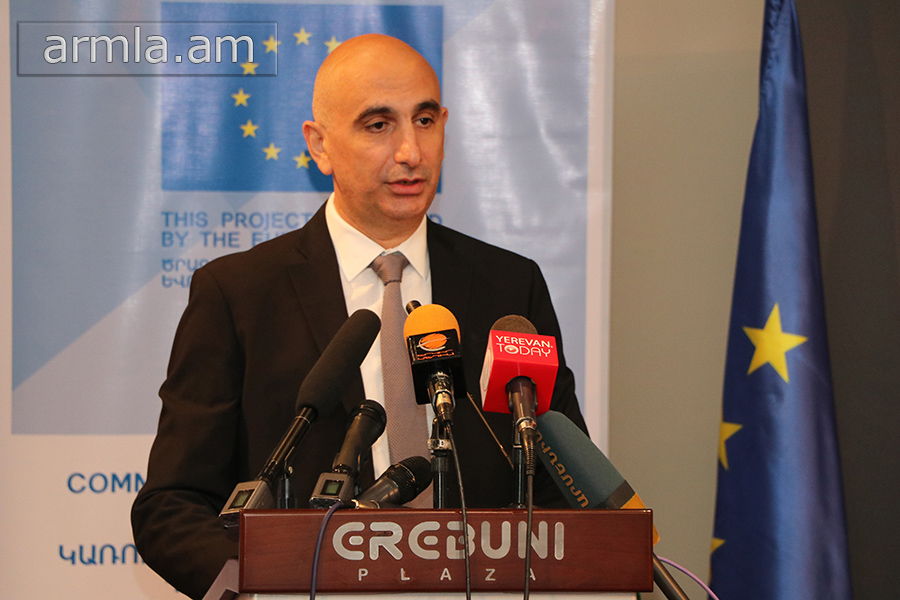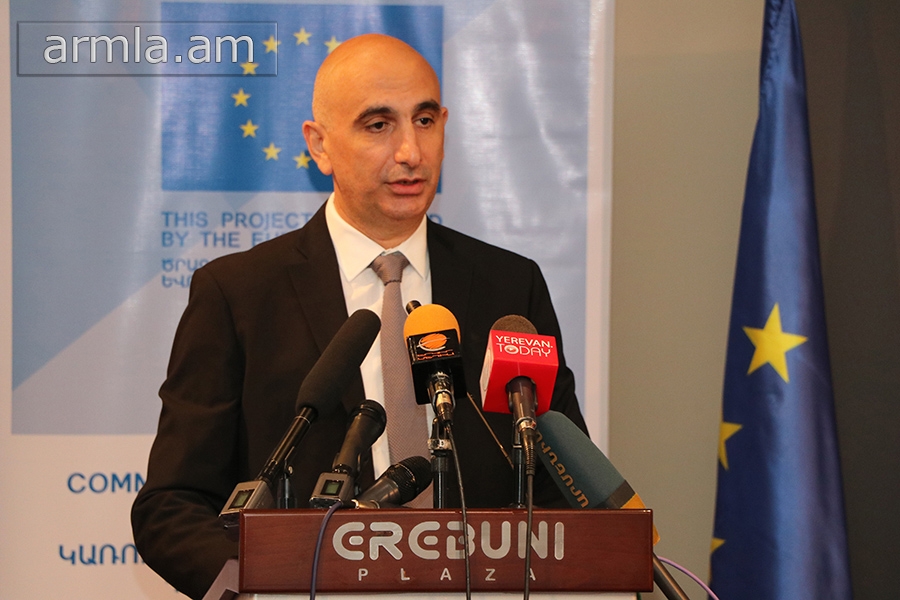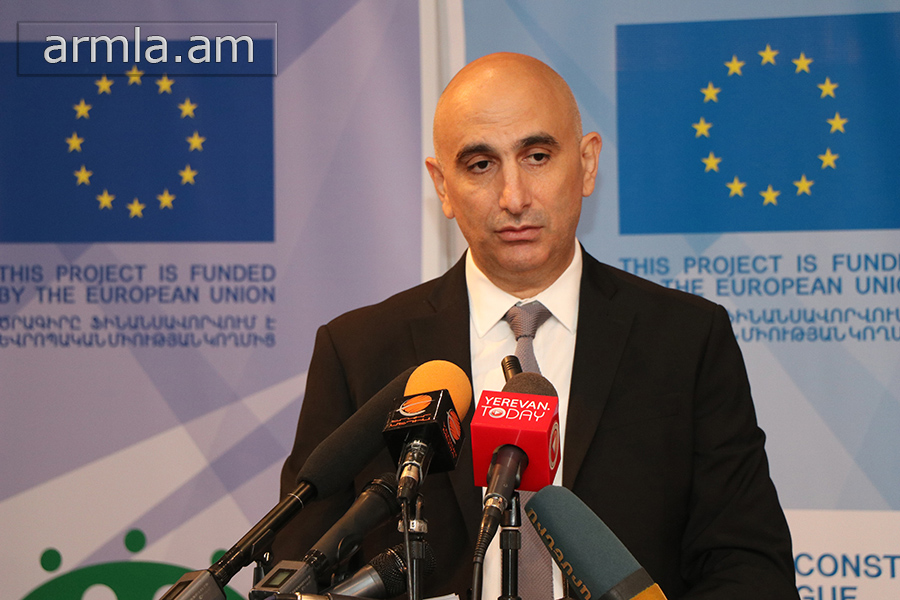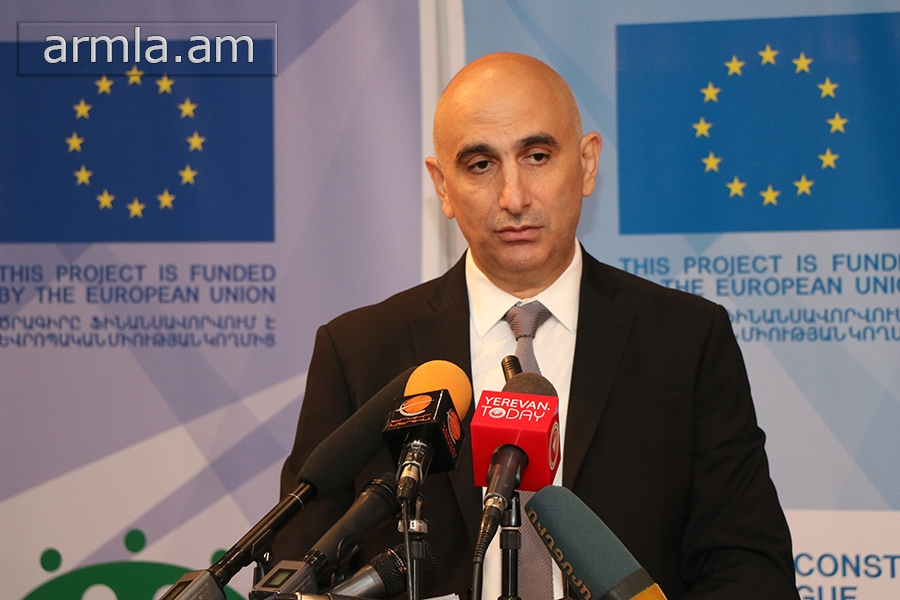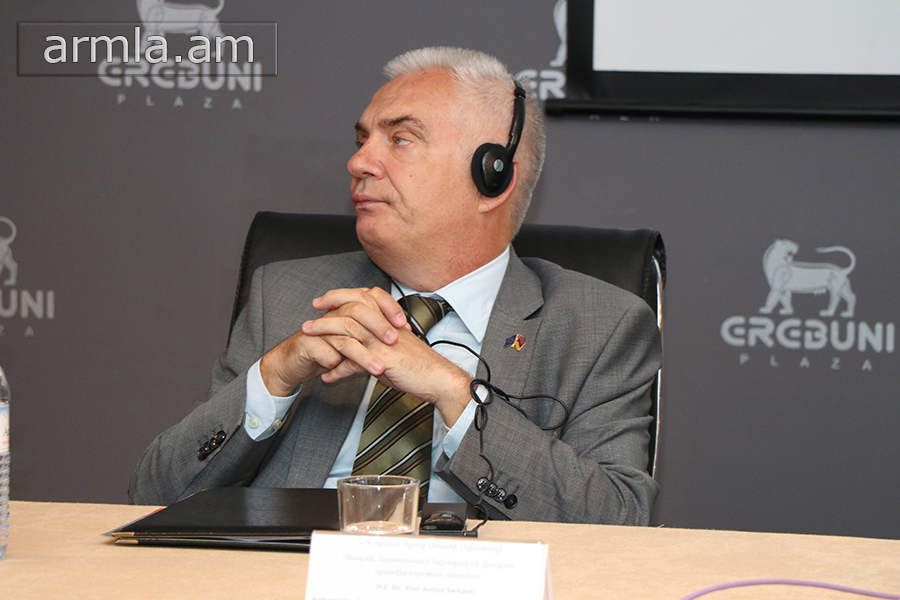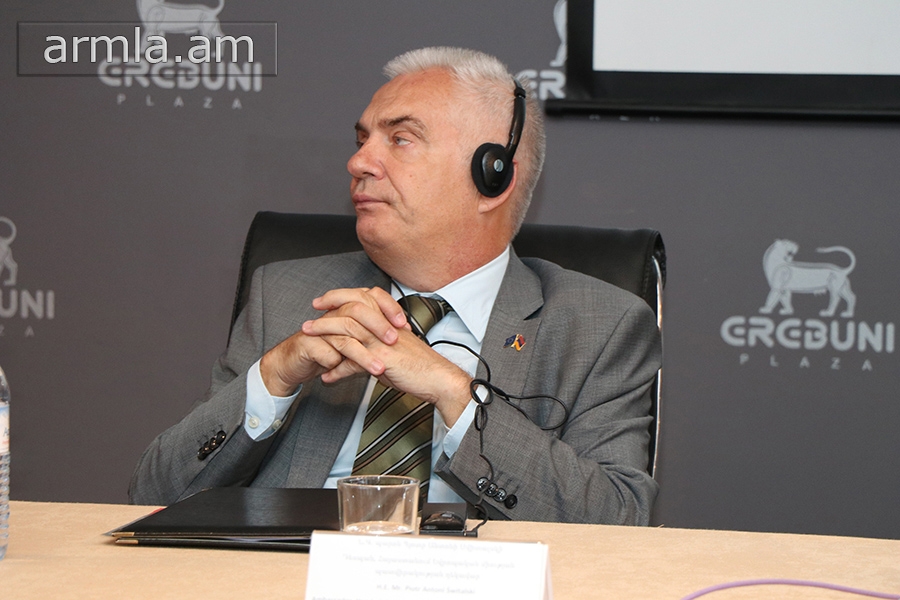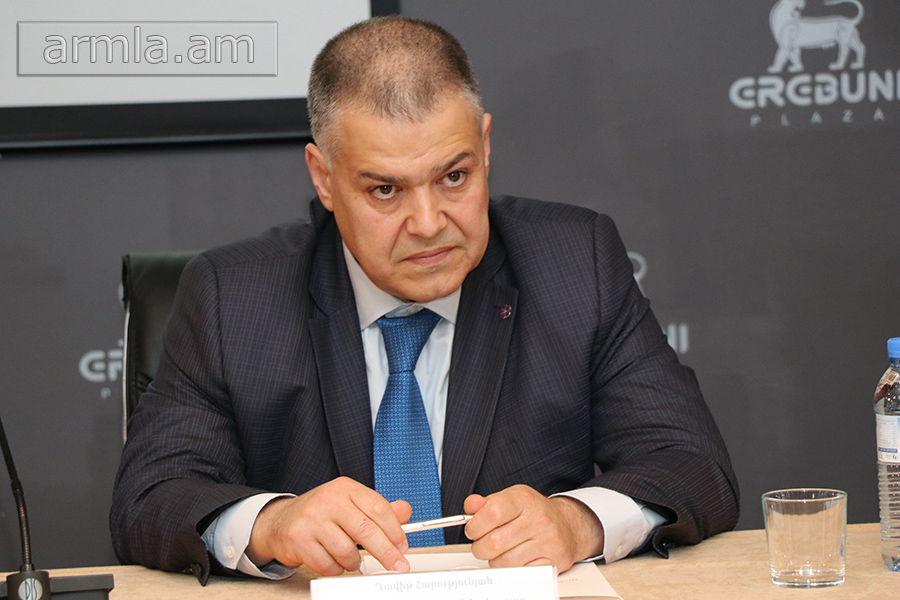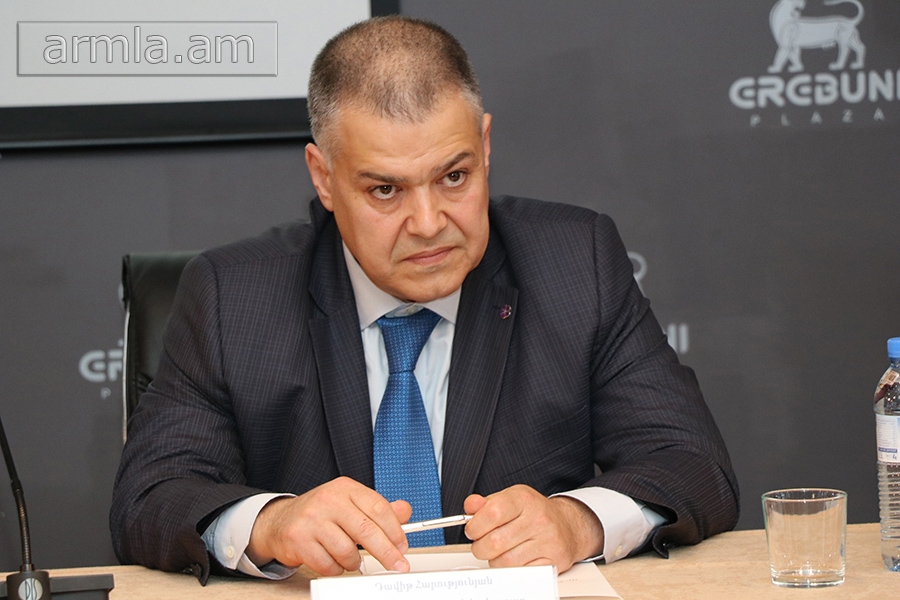The European Union-funded “Constructive Dialogue Commitment” program was officially opened in Yerevan today.
“The basis of this project is the dialogue,” The Head of the EU Delegation in Armenia Ambassador Piotr Świtalski said. In his words, the new project provides wide opportunities for NGOs and the Armenian Government.
“Armenia may be proud of its civic activism. There are four thousand non-governmental organizations, one thousand foundations registered in Armenia. Even if only a part of these organizations is active, some say 10-15 percent, but this already is a very powerful potential. The dialogue is at the heart of this project. Dialogue is the basis of this program. It is extremely important,” Mr. Ambassador Piotr Świtalski said.
“Achieving a Dialogue is not easy,” is the opinion of the EU Ambassador, but you cannot record any result without it. In addition to dialogue with the government, the ambassador believes that the establishment of a dialogue between the organizations is also important. From this point of view, the project will have a great impact, within which new coalitions will be formed. “Non-governmental organizations sometimes compete against each other. When the European Union collects applications for funding, some are dissatisfied with the results. There are problems, but we hope that alliances will be established under this program and we will succeed in building a new bridge between civil society organizations, because dialogue in this field is very important to us as well,” the Ambassador said.
“The combination of efforts of the government and civil society has no alternative to implementing reforms in Armenia,” Mr. Karen Zadoyan, President of the Armenian Lawyers’ Association and the “Commitment to Constructive Dialogue” Project said. The new program will bring positive changes to 9 areas.
“We will strengthen the capacity of non-governmental organizations. Capacities that organizations will use in their everyday activities to develop and implement evidence-based public policies; build and develop coalitions; exercise public monitoring; as well as developing and implementation of sustainable and constructive dialogue with the government and local self-government bodies,” Mr. Zadoyan assured.
Apart from Yerevan, the project will also be implemented in the regions. The objective is to increase the capacity of regional NGOs to the extent that they effectively influence the solution of social issues in communities.
“The program is also important because we need to develop a culture of CSOs to develop cooperation. If we ask the government and local self-government to cooperate with us, we have to be an example and be able to cooperate with each other. This is why the project has a target: Creating or developing CSOs’ coalitions in 9 sectors, which can be the leader and avant-garde, coordinate the movement, which will bring changes to these areas. This is very important to us, and we have set up our consortium with six partners, showing that we can implement a project not with 2 organizations, but 6 organizations as well,” he said.
Justice Minister Davit Harutyunyan, approaching the podium, announced, that he had an assignment from the Prime Minister to speak on behalf of the Government. He stressed that he have come to say that the government has been ready to cooperate fully, deeply and sincerely.
“This is the Prime Minister’s statement, on behalf of the entire Government. Of course, we understand that the Government is the main policy maker, as well as the responsible for implementation, but if we talk about responsibility, we must clearly realize that responsibility does not mean isolation at all. The effectiveness of the governance system can only rise when the society is built on active citizens,” Mr. Harutyunyan said.
From this point of view, the minister expressed confidence that cooperation with the civil society will yield its results.
“This project is interesting because of the capacity of civil society organizations will be develop. It does not refer to purely dissatisfaction, but to the development of evidence based policies and implementation of public oversight. This is not an easy task, it is much easier to criticize than to participate,” the Minister said.
9 target areas are included in the scope of “Commitment to Constructive Dialogue” Project. Lawyer Miss Syuzanna Soghomonyan, Coordinator of Government Civil Society Dialogue of the Project introduced the report on mapping and identification of the sectors.
“They are business, education, and justice, which has been decided when submitting the proposal. The consortium team presented the other six fields, according to the report, and according to the meetings with citizens. They are the social sphere, labor energy, LSGs and communities, which also include transport, agriculture, food security, and human rights, which we thought at this stage would be more appropriate to combine with the justice sector,” she said.
Mr. Carl Ulbricht, EU Expert of the “Commitment to Constructive Dialogue” Project believes that the new project will bring improvements to the lives of citizens. “The potential of public policy impacts has not been fully utilized, so we have to find ways to apply it completely. Within this framework it is planned to promote the impact of CSOs on public policy. These ways for example are: monitoring, the creation and development of coalitions, EU best practice, development of evidence-based policies and engagement in dialogue,” The EU Expert said.
The “Commitment to Constructive Dialogue” Project is implemented with the financial support of the European Union by the “Armenian Lawyers’ Association” NGO in cooperation with its partners; Agora Central Europe o.p.s (an NGO from the Czech Republic), Armenian Center for Democratic Education-CIVITAS, “International Center for Human Development” Public Organization, SME Cooperation Association and Union of Communities of Armenia. This is one of the major European Union funded projects in Armenia. The project was launched on 15 December 2016. Project duration is 34 months. The total cost of the Action is about 2.222.256 million Euros of which the EU contribution is 2.000.000 Euros.
G.T.
A.S.

